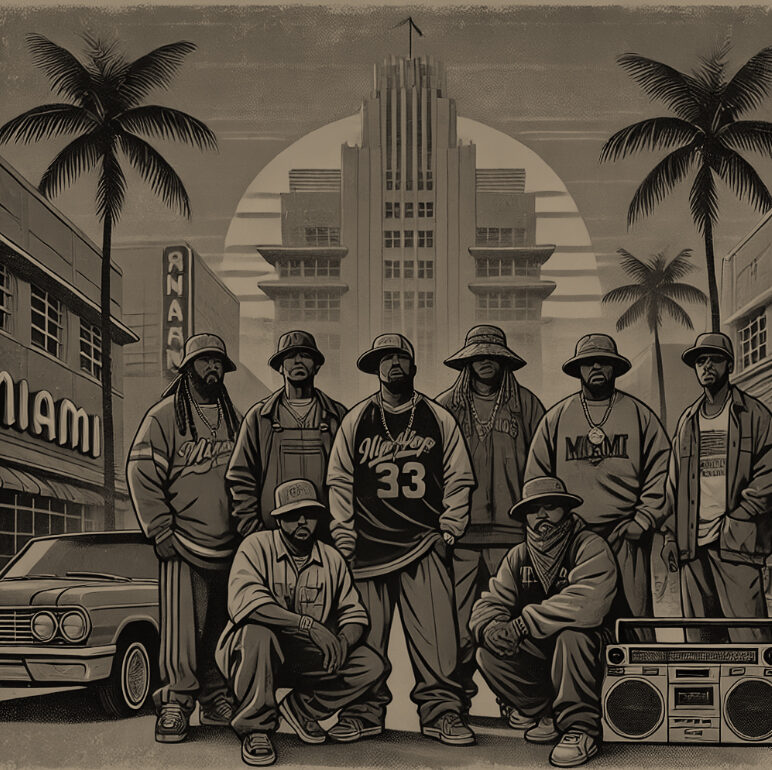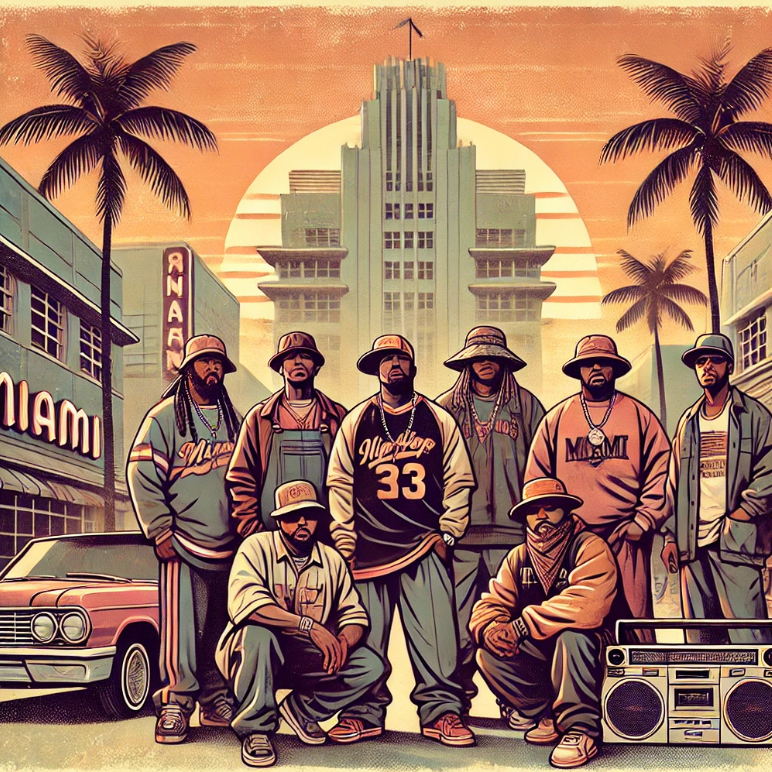
Miami Hip Hop has always been a force of nature, an unapologetically bold expression of its city’s vibrant, chaotic, and deeply cultural identity. Born in the neighborhoods where subwoofers rattle car windows and dance floors erupt into movement, its sound pulses with energy. Miami’s Hip Hop reflects a city where the sun shines bright, but shadows loom large, telling stories of triumph, struggle, celebration, and survival. From party-starting anthems to deeply introspective tracks, the evolution of this music mirrors the evolution of the city itself—resilient, multifaceted, and impossible to ignore.
The story begins in the late ’80s with the rise of Miami Bass. The 2 Live Crew emerged as the genre’s pioneers, pairing booming 808 drums with infectious hooks and a provocative edge that challenged societal norms and sparked debates about censorship. Their music was raw, unfiltered, and impossible to tune out—a sonic embodiment of Miami’s rebellious streak. Miami Bass wasn’t about intricate lyricism or complex storytelling; it was about energy, about getting people moving, and about amplifying the raw thrill of the moment.
As the ’90s unfolded, the city’s sound began to diversify. The rise of artists like Trick Daddy marked a shift toward grittier, more narrative-driven music. Tracks like “Nann” combined streetwise lyrics with beats that blended the rhythm of Miami’s bass heritage with more contemporary Southern influences. Trick Daddy’s work laid the foundation for a broader identity, one that embraced both the struggle and the swagger of life in Miami’s streets. Meanwhile, Poison Clan brought an early wave of Gangsta Rap to the city, offering stark, vivid portrayals of street life that resonated beyond Florida.
The mid-2000s saw Miami’s sound reach new heights of accessibility and grandeur with figures like Rick Ross and Pitbull. Rick Ross, with his deep, commanding baritone and opulent production, painted vivid pictures of ambition, luxury, and hustle. His debut album, Port of Miami, became a defining work of the era, merging cinematic instrumentals with a gritty depiction of life on the grind. Pitbull, on the other hand, fused Miami’s Latin influences with club-ready beats, creating music that celebrated the city’s multicultural heartbeat—and while we recognize Pitbull’s significance for the Miami music scene by mentioning him here, we didn’t include any of his pop-rap albums in the actual list because we feel none of them are particularly good.
Simultaneously with the ascend of figures like Rick Ross and Pitbull, a quieter revolution was brewing in the underground. Artists like SpaceGhostPurrp and Raider Klan brought darker, more introspective vibes, incorporating lo-fi aesthetics and eerie atmospheres that helped shape the burgeoning Cloud Rap movement. These experimental sounds paved the way for future innovators, including XXXTentacion, whose music explored themes of pain, anger, and vulnerability in ways that felt both deeply personal and universally relatable.
Today, Miami Hip Hop is a mosaic of styles and voices. From the bass-driven anthems of its origins to the emotionally charged experiments of its modern innovators, the city’s contributions to Hip Hop are as varied as its neighborhoods. This list of 25 essential Miami Hip Hop albums is a celebration of that diversity, a recognition of the sounds that have defined a city and influenced the genre on a global scale.
2 Live Crew – The 2 Live Crew Is What We Are (1986)
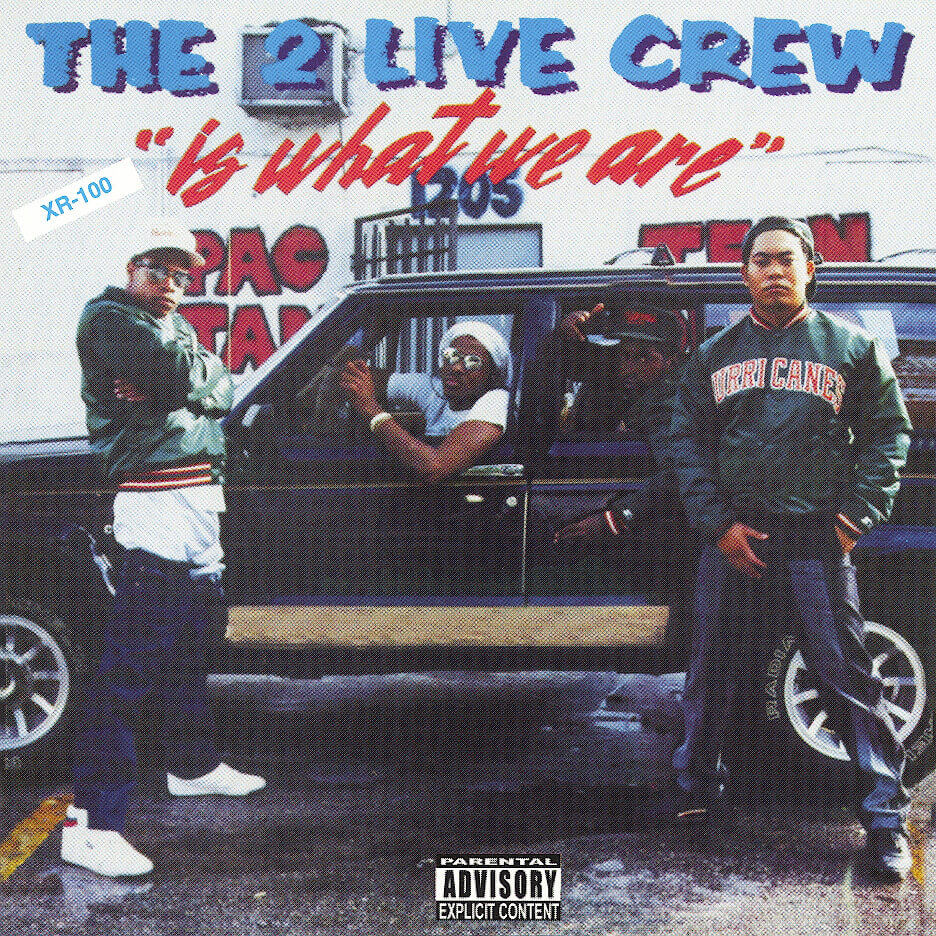


The 2 Live Crew Is What We Are is a landmark in Florida Hip Hop, establishing Miami as a pivotal hub for music that thrives on energy, humor, and boldness. Released in 1986, this album introduced 2 Live Crew’s unapologetically raunchy style and helped define Miami Bass—a subgenre known for booming 808s and party-ready beats. With its fusion of fast rhythms, provocative lyrics, and playful irreverence, the album made an indelible mark on Hip Hop and pop culture.
Opening with “2 Live Is What We Are (Word),” the album begins with a nod to mid-80s Hip Hop’s DJ-centric roots. The track features crisp scratches and a stripped-down beat, punctuated by heavy drums and quick guitar stabs. The verses are more about self-introduction than innovation, but the turntablism at the end gives it an edge. It’s a warm-up to the more distinct sounds that follow.
“We Want Some Pussy” is where the album shifts gears. Built around rock-infused guitars, booming bass, and a hypnotic drum pattern, the track’s raw energy is impossible to ignore. The shouted call-and-response hook is instantly catchy, setting a rowdy tone. Lyrically, the Crew embraces humor and absurdity, blending explicit content with outlandish boasts and tongue-in-cheek lines. Fresh Kid Ice and Brother Marquis trade verses with unfiltered confidence, delivering their lines with a comedic sharpness that feels almost theatrical.
“Get It Girl” leans heavily into Miami Bass’s defining elements, featuring rapid-fire 808s, claps, and vocal samples that create a pulsing rhythm. The song is minimalistic but electrifying, with a relentless pace that captures the dance floor spirit. Tracks like “Throw the D” continue this momentum, pairing infectious beats with raucous, sexually charged lyrics that cement the group’s reputation as provocateurs.
While some tracks, like “Cut It Up,” are more straightforward and less dynamic, the album’s playful tone and experimental beats keep it engaging. The closer, “Mr. Mixx On the Mix!!,” showcases DJ artistry, tying the project together with scratches and loops that highlight the Crew’s party-first ethos.
The 2 Live Crew Is What We Are is vibrant, audacious, and fun—a foundational album that shaped the sound and attitude of Miami Hip Hop.
MC. A.D.E. And Posse – Just Sumthin To Do (1987)
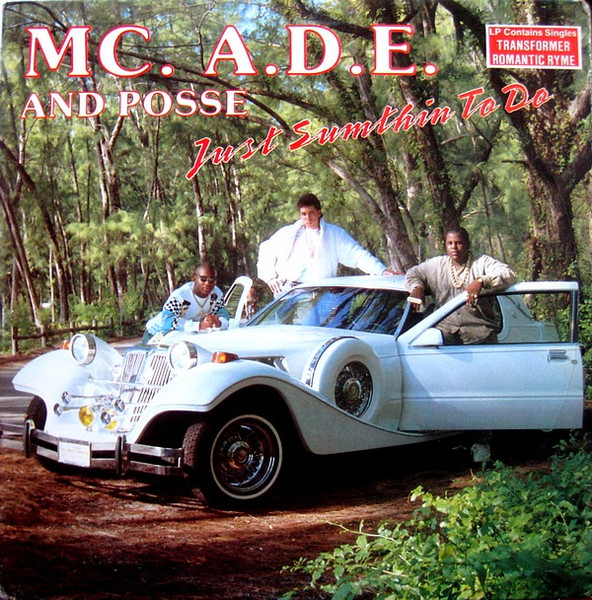


MC A.D.E. And Posse’s Just Sumthin To Do is a lively display of Miami Bass in its early, electrifying form. The album is rooted in relentless beats and rhythm-heavy production, prioritizing movement and energy over lyricism. At its heart, this is music built for the dance floor, with a focus on pulsing basslines, quick tempos, and rhythmic vocal delivery that feels less concerned with storytelling and more intent on creating a contagious groove.
Tracks like “I Don’t Care” and “Shake A Lot (The Whip)” embody the album’s essence, driving forward with thick, booming 808 kicks and hypnotic repetition. Rapping take a backseat to the beats, functioning as rhythmic accompaniments rather than narrative vehicles. On “Rockin’ All Over,” the call-and-response vocals and minimalistic hooks amplify the communal, party-ready spirit that defines Miami Bass. The production is raw but effective, layering simple synth melodies with sharp claps and snares to create an infectious sense of momentum.
What Just Sumthin To Do lacks in complexity, it compensates for with a clear sense of purpose. Tracks are tightly constructed, rarely meandering, and consistently anchored by the kind of basslines that seem engineered to rattle car trunks and club walls. MC A.D.E.’s delivery is straightforward, almost conversational, allowing the percussive beats to take the spotlight. His cadence rides comfortably over the rhythms on the few non-instrumental tracks, contributing to the album’s buoyant mood.
At its core, Just Sumthin To Do reflects the ethos of early Miami Bass—a genre deeply influenced by the electro beats of Afrika Bambaataa and the pioneering grooves of Mantronix, and artists like Arabian Prince over on the West Coast. The minimalist production style, while undeniably of its time, still holds an appeal in its rawness. This album leans into the sheer physicality of its sound, creating tracks designed to keep heads nodding and feet moving.
While it may not possess the lyrical depth or polish of other Hip Hop records from the same era, Just Sumthin To Do captures the fun and kinetic energy that defined Miami’s burgeoning Hip Hop scene in the late ’80s. It remains a foundational piece of the genre’s history, reflecting a moment when the beat truly was king.
2 Live Crew – Move Somethin’ (1988)
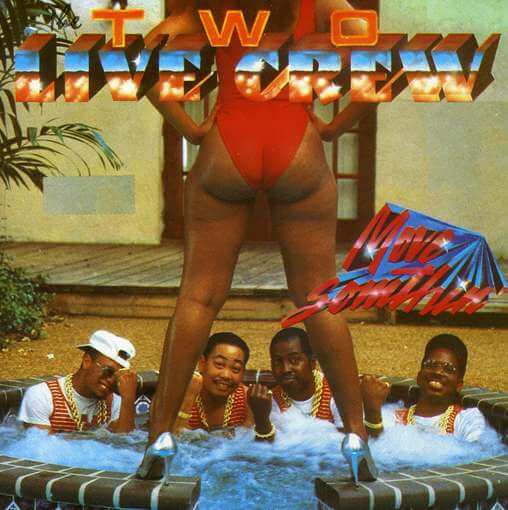


2 Live Crew’s Move Somethin’ keeps the party moving, with its combination of raucous beats and over-the-top, sexually explicit lyrics. Following the success of their debut album, 2 Live Is What We Are, this sophomore effort refines the formula with more sophisticated production and an even heavier emphasis on bass-heavy Miami grooves. The group pushes their signature crude humor and brash lyrics to new levels, embracing the X-rated approach that made them both infamous and hugely popular.
The production, led by Mr. Mixx, is a clear step forward. While the first album relied on more stripped-down beats, Move Somethin’ embraces the growing trend of sample-driven Hip Hop. Tracks like the funky “Drop the Bomb” incorporate go-go influences, giving them a fresh energy that fits right in with the late ’80s sound. The basslines thump, while the drum programming snaps with precision, making the songs feel club-ready. It’s clear that 2 Live Crew’s music is designed to get people moving rather than provoke deep thought. The beats have a sharp, bouncy quality, which elevates the more basic lyrical content and makes the album a fun listen for those in the mood for light, party-centric music.
Lyrically, Move Somethin’ sticks with the crew’s established themes—bragging, partying, and explicit sex. Tracks like “S&M” dive into territory few mainstream Hip Hop acts dared to explore at the time. The crew doesn’t shy away from crass humor, delivering its message with an audacity that was both controversial and appealing to a certain audience. Luke Skyywalker takes a more prominent role here, adding his voice to several tracks and further asserting the group’s dominance in the Miami Bass scene.
While the album occasionally dips into filler, songs like “One and One,” which reimagines The Kinks’ “All Day and All of the Night,” stand out for their outrageous, explicit spin on a classic rock tune. There’s no mistaking the intention behind this track—it’s all about fun, not subtlety. Move Somethin’ is packed with moments designed for dancing and reveling in the absurdity of the lyrics, creating a space where fun and freedom reign supreme.
For fans of 2 Live Crew, Move Somethin’ delivers exactly what was expected: catchy beats, heavy bass, and no-holds-barred, unrefined lyrics. While it may not win over critics of the group’s explicit content, it solidifies their role in shaping the Miami Bass scene and pushing the limits of what could be said in mainstream Hip Hop.
2 Live Crew – As Nasty as They Wanna Be (1989)
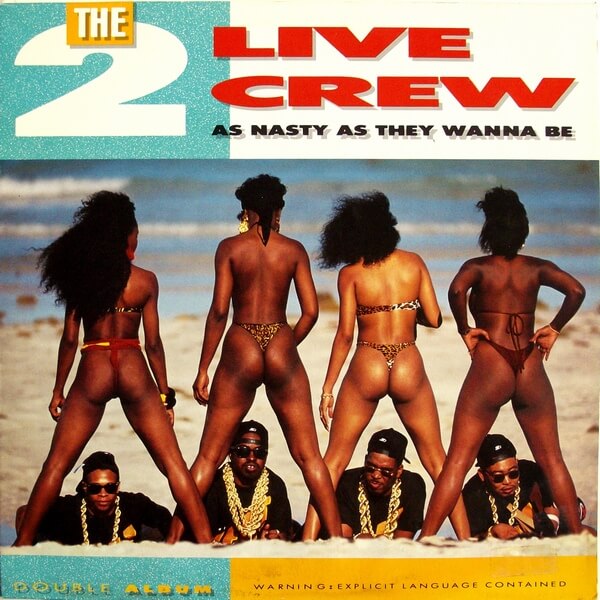


When As Nasty As They Wanna Be dropped in 1989, it set off a cultural explosion that not only transformed the landscape of Southern Hip Hop but also sparked a national debate on free speech. The album, packed with sexually explicit lyrics and crude humor, might not be everyone’s cup of tea, but its influence on Hip Hop and pop culture is undeniable.
Opening with the notorious “Me So Horny,” the album wastes no time introducing its unapologetic, in-your-face tone. The track samples the infamous line from Full Metal Jacket, delivering a sleazy hook over a steady beat and a fat bassline. From there, the album spirals into a non-stop barrage of offensive content and party-ready rhythms. As Nasty As They Wanna Be doesn’t aim for depth or subtlety—its goal is pure, unadulterated fun. Tracks like “The F*ck Shop” and “Put Her in the Buck” are dripping with cheeky, juvenile humor, set to catchy beats that keep the energy high and the dance floor packed.
Production-wise, the album leans heavily on simple, irresistible loops. The use of samples is clever, pulling from rock (“Ain’t Talkin’ ‘Bout Love” by Van Halen on “The F*ck Shop”), funk, and even Kraftwerk. These recognizable riffs blend seamlessly with Mr. Mixx’s booming bass and drum machine-driven beats, providing a slick backdrop to the crude, often laugh-out-loud lyrics. Despite the offensive nature of the songs, the hooks are undeniably infectious, with many of these tracks easily sticking in your head long after the album ends.
Luther Campbell and the crew master the art of creating anthems, with crowd-pleasers like “Dirty Nursery Rhymes” and “Dick Almighty,” offering a mix of humor and catchy, sing-along choruses. Even though the content often veers into absurd territory, the energy of the music itself is what keeps listeners coming back for more. Interludes featuring stand-up comedy legends like Richard Pryor and Eddie Murphy add another layer of humor, giving the album a fun, almost theatrical feel.
At 79 minutes, As Nasty As They Wanna Be is a long, relentless ride through the world of 2 Live Crew’s wild party ethos. While the album’s over-the-top explicitness overshadowed its musical accomplishments at the time, its playful spirit and memorable beats make it a must-listen in understanding the raw, rebellious side of late ’80s Hip Hop.
Poison Clan – 2 Low Life Muthas (1990)
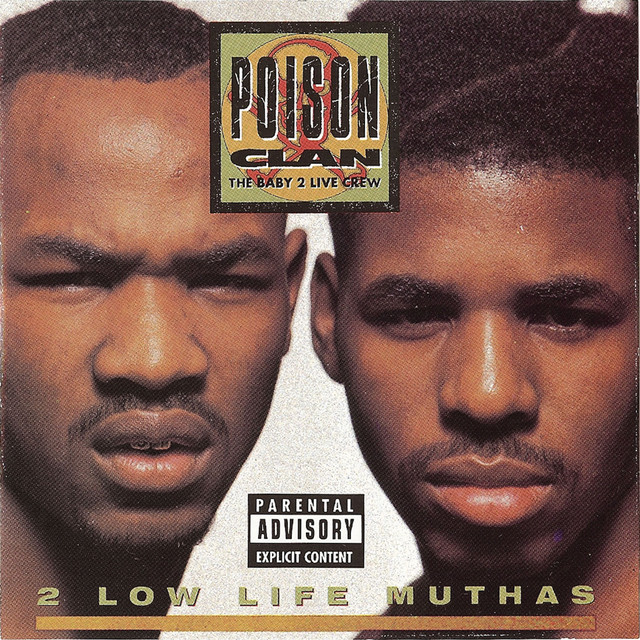


Poison Clan’s 2 Low Life Muthas rolls in with the swagger of a crew determined to leave their mark on the Miami Hip Hop scene. Signed to Luke Records, the album carries the same raunchy, party-centric energy that fueled 2 Live Crew’s success, but with a noticeable shift. This isn’t just about the bass-heavy grooves or the unfiltered sexual bravado that dominated the era. J.T. Money and Debonaire, the duo at the core of Poison Clan, bring a harder edge to their storytelling, lacing their tracks with streetwise aggression and glimpses of gangsta rap that would become more pronounced in their later work.
From the start, the production hits hard, with Mr. Mixx delivering beats that, while familiar to fans of 2 Live Crew, have a rougher, more stripped-down feel. The beats on 2 Low Life Muthas tend to linger in that Miami bass lane, but the energy is focused on giving the tracks weight, with thumping basslines and minimalist loops that give space to the raw, in-your-face lyricism. The album’s highlight is “Dance All Night,” an undeniable club anthem that samples “Theme From Shaft,” pairing its easy-to-catch groove with a laid-back vibe that contrasts with the album’s often intense tone. This track, though, is an outlier. It’s more accessible, smooth, and radio-friendly compared to the rest of the record.
The other tracks, like “Bad Influence,” “Neighborhood Haps,” and “The Bitch That I Hate,” lean into themes of rebellion, womanizing, and general reckless living, embodying the loud, defiant spirit that Miami rap was known for at the time. While Poison Clan doesn’t shy away from their share of misogyny and bravado, J.T. Money and Debonaire’s skill on the mic is clear. The two demonstrate an impressive command of flow and wordplay, keeping things engaging even as they lean into more predictable tropes. It’s the rawness of their approach that sets the album apart, even if some of the material doesn’t break new ground.
2 Low Life Muthas isn’t a groundbreaking classic, but it’s far from forgettable. Its production and delivery show the duo’s potential, and while they lean on some tried-and-true formulas, their personality shines through. For fans of early Miami Hip Hop and those curious about the roots of J.T. Money’s solo career, this debut offers an engaging snapshot of a group that had more to say than the party-rap label they were often given.
The Dogs – The Dogs (1990)
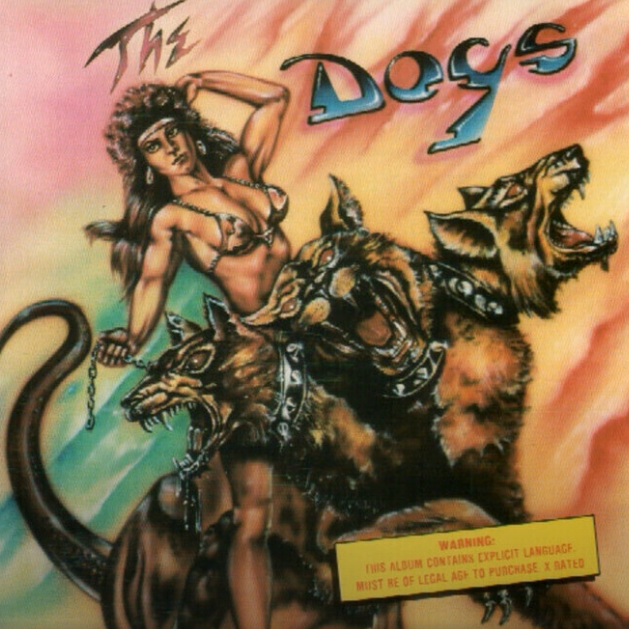


The Dogs’ self-titled debut album from 1990 is a chaotic, unpolished, and audacious entry in Miami Hip Hop history. Released on Joey Boy Records, it taps into the high-energy, bass-heavy sound of the era, with lyrics that range from raunchy to outright confrontational. While it isn’t a polished work or one with enduring mainstream appeal, its rawness and willingness to push boundaries make it a fascinating artifact of its time.
Anchored by tracks like “Your Mama’s on Crack Rock,” the album straddles the line between parody and earnest commentary. The song’s absurd, repetitive hook and jarring subject matter leave an impression that’s hard to shake. It’s a grim portrait of the crack epidemic delivered with a strange mix of humor and gravity, capturing the group’s knack for courting controversy while addressing real social issues, albeit in their uniquely brash way.
The production leans heavily on Miami bass fundamentals—thudding 808s, rapid hi-hats, and minimalist melodies designed for the club. Tracks like “Take It Off” revel in the bawdy, dance-oriented vibe that defined much of the regional sound. Disco Rick, Labrant Dennis, and the rest of the group deliver verses with a stilted, exaggerated flow that matches the music’s no-frills aesthetic. Their delivery often feels less like rapping and more like chants shouted over booming beats, amplifying the album’s raucous energy.
One of the most infamous tracks, “Fuck the President,” takes aim at political leadership with crude directness. Its repetitive structure and inflammatory lyrics reflect the group’s penchant for shock value, channeling anger and defiance into a song that’s as provocative as it is simplistic. While its approach lacks nuance, it embodies the rebellious spirit that fueled much of Miami’s Hip Hop scene during the era.
Despite its glaring flaws—derivative moments, clunky lyricism, and occasional lapses into tastelessness—The Dogs has an undeniable place in Miami Hip Hop’s history. It’s not a great album, but its raw energy, pioneering character, and unfiltered perspective capture a moment when local artists were experimenting, challenging norms, and creating music that reflected their environment in ways few others dared.
Poison Clan – Poisonous Mentality (1992)
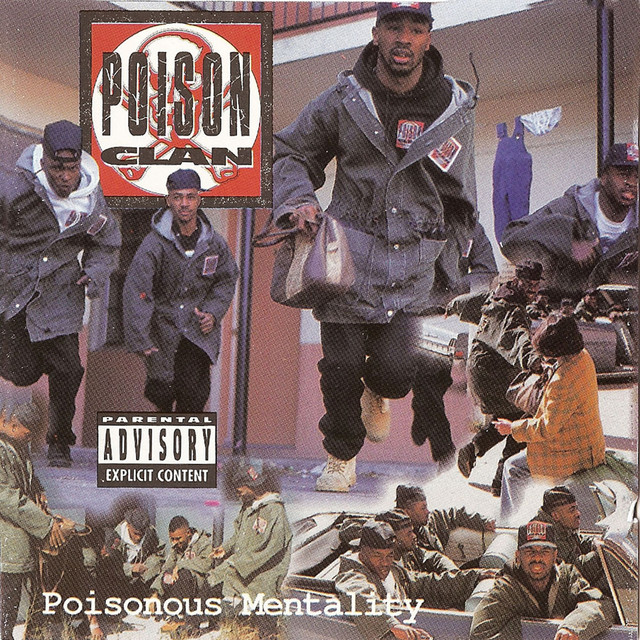


Poisonous Mentality sees JT Money navigating a shift from the playful energy of 2 Low Life Muthas to something much darker and more aggressive. After the departure of his partner Debonaire, JT assumes full control of Poison Clan, steering the group into more sinister waters with this sophomore release. Gone are the lighthearted party tracks, replaced by hard-hitting beats, gritty storytelling, and a relentless attitude. The album features a mix of street tales and misogynistic rants, delivered with an almost reckless sense of humor and disregard for convention.
The production on Poisonous Mentality moves away from the Miami bass-heavy sounds that defined their debut, leaning instead toward a rawer, East Coast-influenced style. DJ Mike Fresh crafts beats that are funk-driven and punchy, with heavy drums and samples that keep the tempo aggressive, yet manageable. While the production doesn’t reach the same level of flair as Mr. Mixx’s work on 2 Low Life Muthas, it still maintains a strong presence. Tracks like “Shake Whatcha Mama Gave Ya” embrace the Miami party vibe, offering a club-friendly hit amidst the album’s darker tracks. But the majority of the album stays grounded in the harder, grimmer style that JT Money’s newfound solo role demands.
Lyrically, Poisonous Mentality is driven by JT Money’s unapologetic attitude and gritty perspective on life in Miami. The album is loaded with brash, almost cartoonish depictions of violence, crime, and the harsh treatment of women. Songs like “All They Good 4” and “I Hate Ho’s” are blunt in their misogyny, leaving little room for ambiguity. These tracks revel in disrespect, with JT delivering lines that leave no question about his attitude toward women. It’s an intense and, at times, uncomfortable listen, but it’s clear that JT is leaning into the persona of a hard-edged, no-nonsense gangsta rapper.
Despite some of its more problematic moments, Poisonous Mentality is a fascinating listen. It’s an album where JT Money comes into his own as a solo artist, shaping Poison Clan into his vision. While the beats may not always be groundbreaking, the mood and energy of the album are undeniable. For fans of Miami’s tough rap scene, it’s a necessary chapter in the evolution of both JT Money and the sound of the South. Tracks like “Action” and “Livin’ in the City” are a good representation of the album’s rough edges and persistent aggression. It’s not for everyone, but it’s certainly a key moment in the development of 90s southern Hip Hop.
Luke – I Got Shit On My Mind (1992)
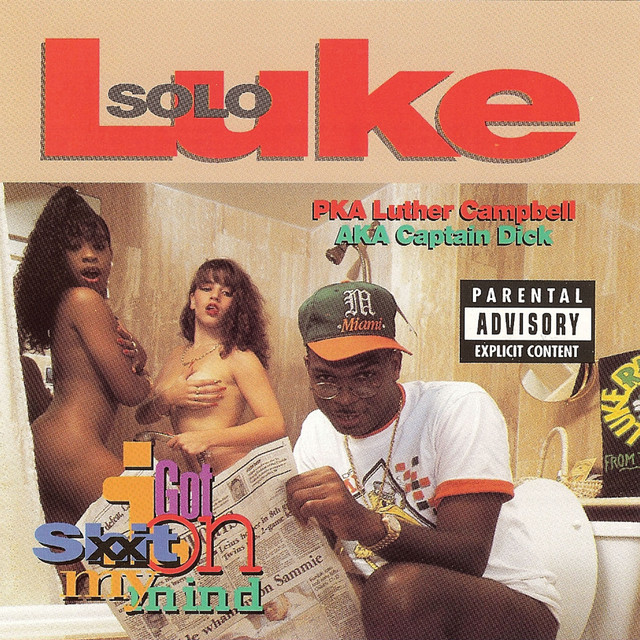


Luke’s I Got Shit on My Mind carries the same irreverent energy that defined his tenure with 2 Live Crew, but here, he fully embraces his solo identity with crass humor and a hard-hitting Miami Bass sound. From the moment the album kicks off, the beats throb with deep 808s and rapid-fire hi-hats, laying the foundation for the brashness that follows. Tracks like “I Wanna Rock” (also known as “Doo Doo Brown”) make it clear: Luke is still about getting bodies moving with club-ready anthems and outrageous content. The bass is so heavy, it almost feels like it could shake loose the floor beneath you.
The album is unapologetically raunchy, with songs like “Head Head and More Head” and (the pretty terrible) “Menage a Trois” being the kind of unrestrained, explicit cuts that made Luke famous. There’s no subtlety here, just a pure commitment to party vibes and pushing the limits of good taste. It’s playful, it’s crude, and it’s about owning that wild, no-holds-barred persona, whether it’s poking fun at N.W.A on “Fakin’ Like Gangsters” or taking shots at Kid ‘n Play with “Pussy Ass Kid and Hoe Ass Play.”
While the hardcore bass jams will always be the highlight, the album doesn’t shy away from some low points, like slow jams and awkward rock-rap moments that feel forced and take the pace out of the project. The album meanders a bit in these spots, with long monologues and attempts at variety that don’t quite land. Still, Luke’s charisma carries things forward, and his delivery remains tight enough to hold your attention, even if the content isn’t always engaging.
I Got Shit on My Mind recaptures some of the energy and freshness that was missing from 2 Live Crew’s fourth album, Banned in the USA. While that album featured the iconic title track, much of it leaned heavily on their tired formula and it was weighed down by countless skits. In contrast, Luke’s solo debut pulls the focus back to what made Miami Bass so electrifying in the first place: bold beats, infectious hooks, and an undeniable sense of fun. This album feels like a reset, a return to the raw, dancefloor-driven sound that defined Luke’s earlier successes, while still carving out space for his personality to shine as a solo artist.
For fans of Miami Bass, I Got Shit on My Mind is essential, even if it’s far from a flawless record. The best cuts – the catchy, bass-thumping anthems and playful diss tracks – make it a guilty pleasure for those in tune with the genre’s specific brand of humor and energy. It’s raunchy and brash, and for Luke’s loyal followers, that’s exactly why it works.
DJ Uncle Al – What’s My Name (1994)
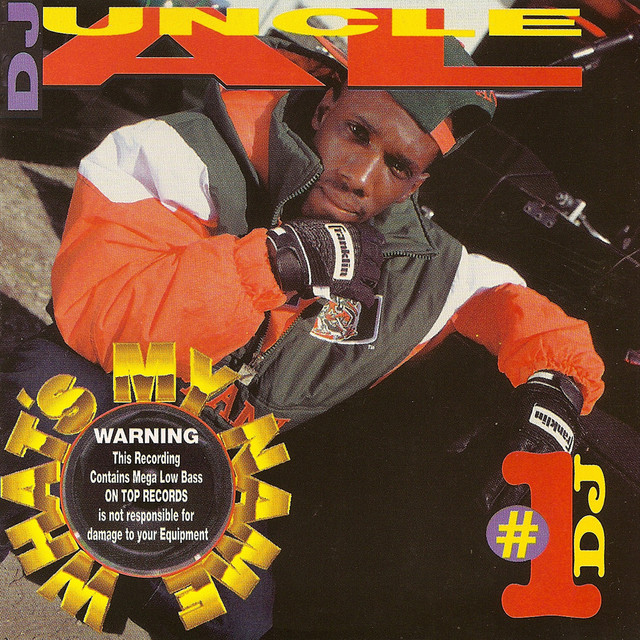


DJ Uncle Al’s What’s My Name? is a defining slice of Miami’s fast-paced club culture, built on booming basslines, rapid-fire beats, and Al’s commanding personality. The album pulses with the energy of the city’s dance floors, where bass music reigned supreme. DJ Uncle Al blends his dynamic mic work with infectious grooves, creating a nonstop party soundtrack that captures the spirit of early ’90s Miami Hip Hop.
The album’s opener establishes Al’s presence immediately, with his voice commanding attention over bass-heavy production. Tracks like “$2 Dollars Baby” deliver the quintessential Miami bass experience, pairing hypnotic rhythms with playful lyrics tailored for late-night club scenes. The beats are relentless, designed to keep feet moving, while Al’s chants and instructions ensure every moment feels interactive, as if he’s DJing live in the room.
Amid the party anthems, Al’s versatility shines through in songs with thoughtful messages. “Just Say No To Drugs” is a standout, weaving a serious theme into the album’s high-energy framework. Over a steady rhythm, Al delivers an earnest call for positivity and awareness, showing that his work wasn’t limited to celebration but also carried a sense of responsibility. Similarly, “Peace In Da House” encourages unity and calm, reflecting a deeper layer of intention beneath the surface of the beats.
“What’s My Name?” and “#1 DJ” lean into Al’s swagger, with tracks that double as personal anthems and tributes to his craft. He doesn’t just keep the energy high; he asserts his place at the center of it all, making every track a reflection of his dynamic presence. The record feels like an invitation into Uncle Al’s world, where the DJ booth is the control center for the party, and the bass sets the tempo for life.
What’s My Name? is a time capsule of Miami’s bass-driven sound and club scene. DJ Uncle Al’s voice and beats bring that world to life, leaving behind an album that’s both a celebration and a piece of the city’s Hip Hop history.
Trick Daddy – www.thug.com (1998)
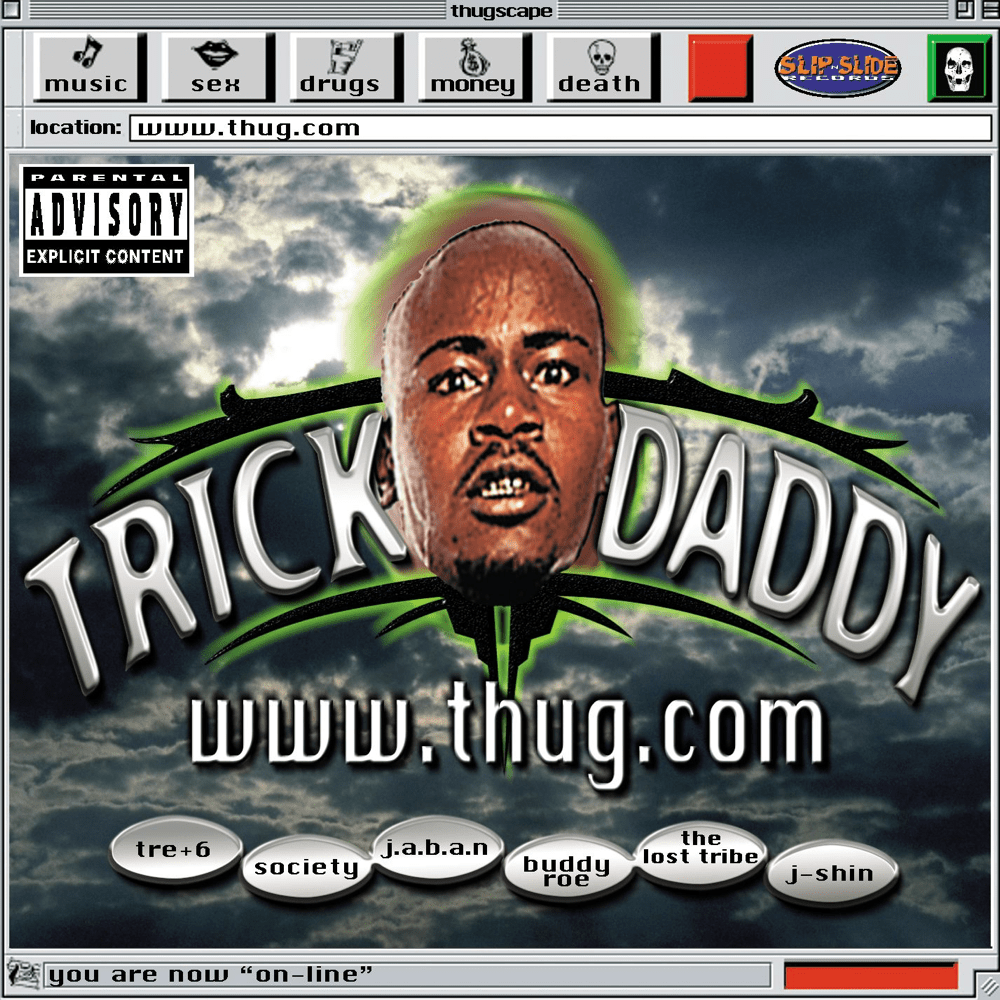


Trick Daddy’s www.thug.com blends gritty street tales with a playful edge. The album is grounded in Trick’s unflinching authenticity, delivering his life experiences with blunt honesty, sharp wit, and an undeniable sense of swagger. This sophomore release channels Miami’s rough-and-ready spirit while tapping into the broader soundscapes of late ’90s Hip Hop.
From the outset, www.thug.com hits hard. The title itself, a reference to a URL, was both ahead of its time and emblematic of Trick’s tech-savvy edge. The album’s production is heavily influenced by the Southern sound, with a mix of classic G-Funk, smooth R&B flourishes, and the slapping bass lines that defined Miami Bass. It doesn’t always hit the mark sonically by today’s standards, especially on some of the more dated beats, but there’s enough energy and character to keep the vibe alive.
Standout tracks like “Nann Nigga” set the tone for the project, featuring the slick flow of both Trick and his frequent collaborator, Trina. The beat is hypnotic, yet heavy, providing a perfect backdrop for Trick’s confident, often brash delivery. The smooth track “So What” is another high point, with its laid-back groove and catchy hooks that balance Trick’s tough persona with a more approachable side.
What makes www.thug.com so engaging is Trick’s versatility. He can switch from brutally honest street narratives to humorous, sexually charged tracks with ease. The record delivers heavy introspection on songs like “Shut Up” and “Ain’t No Santa Claus,” while maintaining a sense of humor on tracks like “Thug Holiday,” where he imagines the holidays in his own style. Trick’s ability to shift from gritty gangster rap to fun party anthems shows off his broad range, keeping the album dynamic and engaging.
Though the production may sound a bit dated in spots, especially on the G-Funk-inspired beats, the album is still a highly entertaining listen. Trick Daddy’s charisma and skill as a storyteller shine through, making www.thug.com a key moment in the evolution of Miami Hip Hop. This album remains a strong example of Trick Daddy’s unique ability to blend street toughness with more playful, melodic elements, solidifying his place in the Southern Hip Hop scene.
Trina – Da Baddest Bitch (2000)
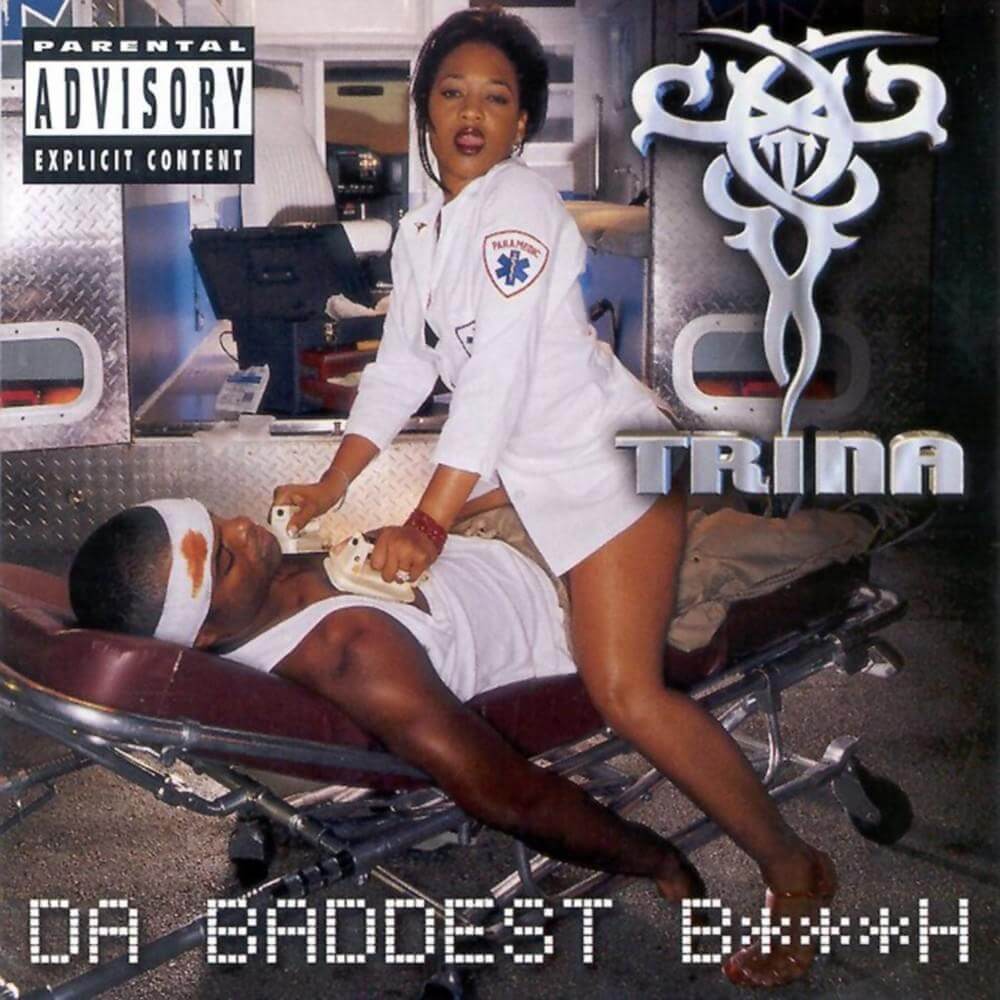


Trina’s Da Baddest Bitch is an album that dives deep into the assertive, playful, and brash side of Miami Hip Hop. From the first track, it’s clear that Trina’s confident delivery and bold subject matter are here to stay. The title track is an unrelenting statement, with a beat that smacks with the bass-heavy, party-ready feel of Miami’s rap scene. Trina wastes no time letting listeners know she’s not here for modesty or subtlety. Her lyrics are often audacious, drawing a fine line between confidence and provocation. “I’d probably fuck your daddy if your mammy wasn’t playa hatin’” is just one example of the kind of boldness that defines this album.
Musically, Da Baddest Bitch sticks close to the Miami bass and Dirty South traditions. The production, handled by several different teams including Black Mob Group and Righteous Funk Boogie, has a grungy, street-level vibe that matches Trina’s no-nonsense attitude. Tracks like “Ain’t Shit” offer a twisted update on the laid-back, yet menacing beats of early West Coast rap, while “Off Glass” pulses with a hard-hitting groove. There’s a playful sense of drama throughout the album, especially with the guest appearances, which bring energy and variety. Trick Daddy’s feature on “Off the Chain” adds a rough edge, while Twista’s rapid-fire flow on “Watch Yo Back” ramps up the intensity.
While much of Da Baddest Bitch is driven by sex-driven themes, it’s not all about boasting and bedroom bravado. Trina shows vulnerability on the track “Mama,” where she reflects on her relationship with her mother in a surprisingly tender moment. Still, the album sticks mostly to the formula of flashy lines and seductive confidence, even when the skits drag on a bit, filling space with unnecessary filler.
By the end, there’s a slight sense of fatigue. The same themes of self-assurance and power are repeated throughout the album, making the impact of the title track feel stretched thin over the course of 17 tracks. But even when the album starts to lose momentum, the production keeps things moving with catchy beats that demand attention. Overall, Da Baddest Bitch is a fun, energetic debut, delivering an unforgettable first impression of one of Florida’s fiercest voices in Hip Hop.
Trick Daddy – Thugs Are Us (2001)
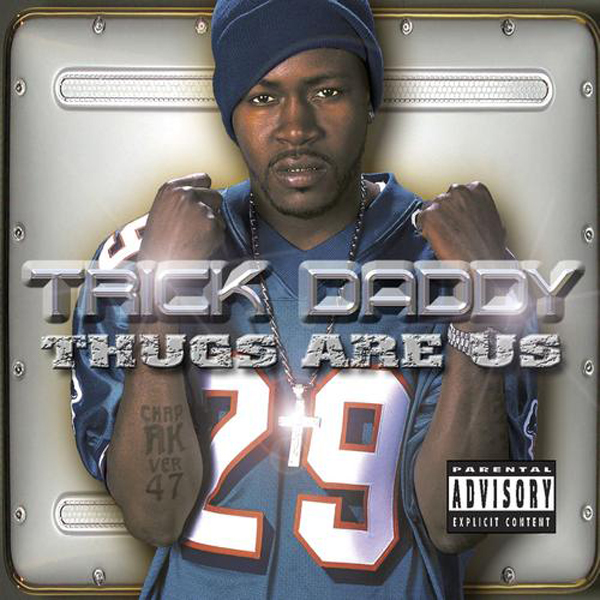


Trick Daddy’s Thugs Are Us channels the raw energy and swagger of Miami’s Dirty South movement. Anchored by heavy basslines, crisp hi-hats, and addictive hooks, the album delivers a mix of raucous party anthems and street narratives with a confident edge. From the outset, Trick’s gritty voice and storytelling pull listeners into his world, offering a snapshot of his life and the energy of his city.
The standout single, “I’m a Thug,” balances gritty lyrics with a surprisingly melodic beat, creating an anthem of perseverance and individuality. The track’s catchy, sing-along chorus and smooth instrumental give it wide appeal without losing its edge. Meanwhile, “Take It to Da House” is a high-octane party track, showcasing Trick and his Slip-N-Slide crew, including Trina and Deuce Poppi. The beat is relentless, with vibrant call-and-response energy that invites movement and celebration.
The album also leans heavily into Miami’s bass-driven, club-focused traditions. Tracks like “Pull Over (Remix)” and “Noodle” deliver unabashedly explicit lyrics set to pounding rhythms that are impossible to ignore on the dancefloor. These moments highlight Trick’s commitment to keeping Miami’s booty-shaking legacy alive while delivering tracks brimming with personality.
While Thugs Are Us thrives on its high-energy highlights, it isn’t without missteps. Some skits and tracks like “99 Problems” feel less inspired, slowing the album’s momentum. Trick’s collaborators often take center stage, adding variety but at times diluting the focus on him as the lead artist. Despite these occasional dips, the album maintains enough energy and memorable moments to carry it through.
Thugs Are Us is a celebration of Miami Hip Hop, blending high-octane production with Trick Daddy’s distinctive voice and perspective. It captures the vibe of its time with a mix of defiance, humor, and an unfiltered connection to its roots. The album’s strongest tracks remain staples of Miami’s musical legacy and affirm Trick Daddy’s role as a defining voice in the Dirty South movement.
Trina – Diamond Princess (2002)
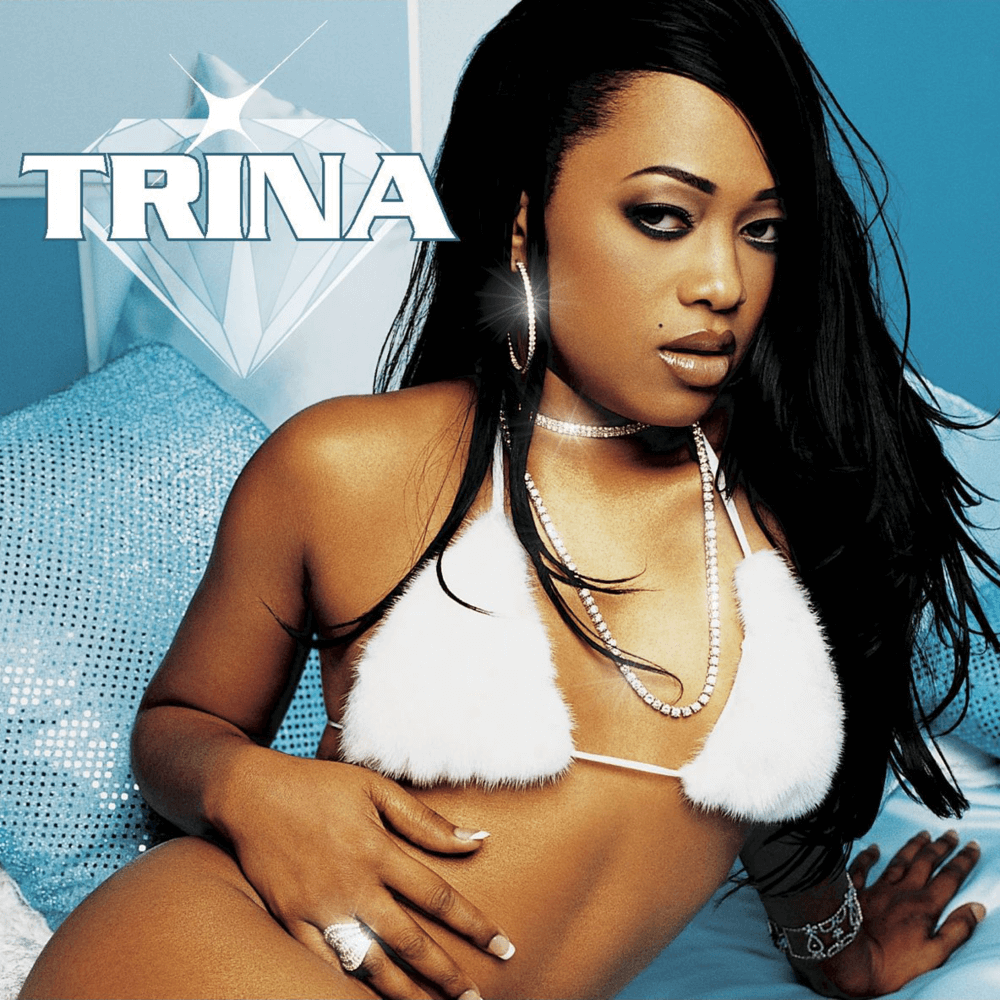


Trina’s Diamond Princess glimmers with unapologetic confidence and sharp-edged swagger, amplifying her voice as one of Miami’s most magnetic Hip Hop figures. The album dives headfirst into bold declarations of independence, sensuality, and ambition, all delivered with her unmistakable Dirty South drawl. Across 17 tracks, Trina refines her sound, blending street-smart lyricism with high-polish production.
The opener, “Intro,” with comedian Sommore, sets a brash and cheeky tone, preparing listeners for Trina’s blend of audacity and charisma. The lead single, “No Panties,” featuring Tweet, rides on Missy Elliott’s minimalistic yet infectious production, turning flirtation into a sharp negotiation of power and luxury. It’s playful, catchy, and undeniably commanding.
On “B R Right,” Ludacris joins Trina over Kanye West’s slick, Middle Eastern-inspired beat, creating an electric club anthem that pulses with energy. Trina matches Ludacris bar for bar, delivering verses that are as assertive as they are rhythmically precise. Tracks like “How We Do?” with Fabolous strip back the production to a lean, drum-driven bounce, letting Trina’s bold delivery shine.
Beyond the hooks and bravado, Trina experiments with softer textures. “U & Me,” produced by Cool and Dre, samples the O’Jays to create a smooth, soulful groove that contrasts her harder tracks. Her collaboration with Eve on “Ladies 1st” brings a celebratory tone, blending empowerment with sharp lyricism, backed by a beat that punches without overpowering the message.
While Diamond Princess leans heavily on guest appearances, including Missy Elliott, Ludacris, and Tweet, Trina’s presence remains central. Her verses are sharp, her confidence unwavering, and her ability to command attention evident throughout. The album ventures beyond the local Miami sound that defined her debut, incorporating broader production styles that range from minimalist drum patterns to richly layered instrumentals.
The album stumbles slightly with a few repetitive moments, but its balance of raw energy and polished production ensures it remains a standout in Trina’s catalog. Diamond Princess confirms Trina’s place as a defining voice in Miami Hip Hop, a blend of charisma, wit, and talent.
Trick Daddy – Thug Holiday (2002)
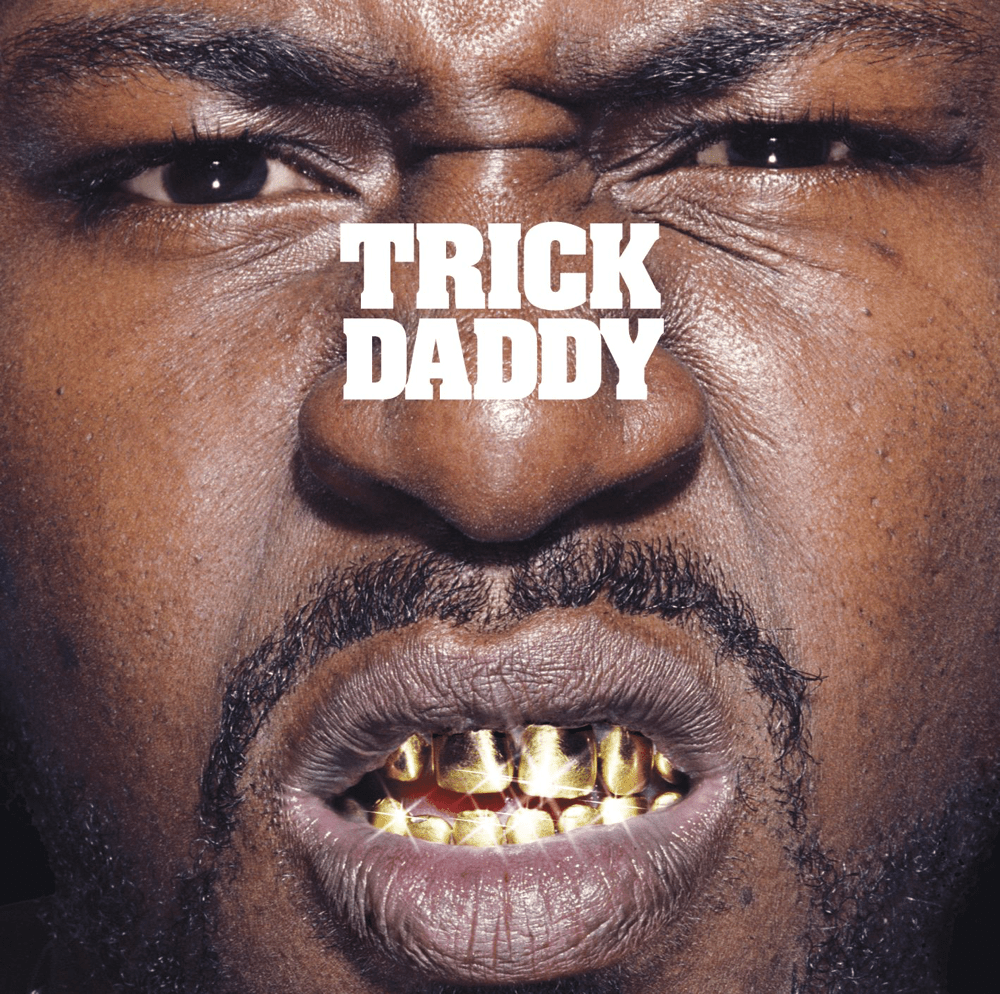


Trick Daddy’s Thug Holiday is a layered and dynamic entry into Miami Hip Hop. Released in 2002, the album finds Trick exploring deeper themes while still delivering the rowdy anthems and streetwise grit that define his style. With beats that blend Miami’s signature bass-heavy sound and soulful melodies, the album captures the tension between celebration and reflection.
“In Da Wind,” the lead single, is a smooth, soulful standout. Featuring Cee-Lo and Big Boi, the track weaves breezy instrumentals with introspective lyrics, creating an atmospheric ride. The chemistry among the three artists is palpable, with each bringing a distinct energy that elevates the song. The title track, “Thug Holiday,” shifts gears into heartfelt territory, as Trick examines societal struggles and personal losses. Backed by LaTocha Scott’s poignant vocals, it’s an emotional centerpiece that offers a rare glimpse of vulnerability amidst the bravado.
Throughout the album, Trick balances his signature charisma with more serious moments. Tracks like “Gangsta,” featuring Scarface, embrace the raw energy of street life, while “Rains It Pours” delivers sharp words for those who crossed him during hard times. The production remains consistent, with contributions from Gorilla Tek, Jim Jonsin, and others, ensuring a mix of booming basslines, melodic hooks, and infectious rhythms.
“Rock N Roll Nigga” stands out for its brash confidence, combining funky grooves with Trick’s unfiltered storytelling. Meanwhile, tracks like “Play No Games” and “Ain’t No Santa” delve into Trick’s personal history, touching on survival and resilience with a gritty honesty. Even with moments of intensity, the album maintains its accessibility, driven by catchy hooks and Trick’s undeniable charisma.
Thug Holiday thrives on its ability to navigate different moods, offering a mix of club-ready tracks and introspective storytelling. While a few skits and filler tracks could be trimmed, the album remains engaging from start to finish. Trick Daddy’s ability to blend raw energy with heartfelt reflections ensures Thug Holiday is an essential piece of Miami’s Hip Hop legacy.
Trick Daddy – Thug Matrimony: Married To The Streets (2004)
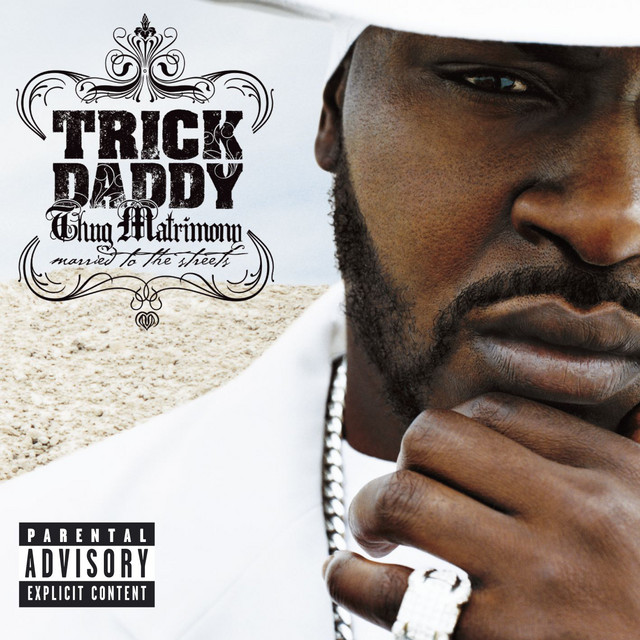


Trick Daddy’s Thug Matrimony: Married to the Streets is an album that balances the rugged charisma of Miami’s streets with moments of surprising introspection and creative risk. Released in 2004, this project captures Trick at his peak, where his unmistakable grit meets polished production and an expanded creative palette.
The album’s opening tracks immediately grip with their high-octane energy. “Let’s Go,” featuring Twista, Lil Jon, and a sampled riff from Ozzy Osbourne’s “Crazy Train,” is a furious anthem designed for maximum impact. Trick’s no-nonsense delivery, combined with Twista’s rapid-fire verses and Lil Jon’s hyped-up ad-libs, creates a track that demands attention. Meanwhile, “Sugar (Gimme Some),” a sultry collaboration with Ludacris and Cee-Lo, leans into funk-laden grooves and playful innuendo, offering a lighter yet infectious contrast.
The soul of Thug Matrimony lies in its ability to shift between raw energy and emotional depth. “I Cry,” featuring Ron Isley, is a standout moment of vulnerability, with Trick reflecting on loss and struggle. Isley’s soulful hook, paired with melancholic guitar riffs, gives the track an emotional weight that resonates deeply. Similarly, “I Wanna Sang” pairs nostalgic, gospel-tinged instrumentation with Trick’s earnest message of perseverance, underscoring his ability to speak to both pain and resilience.
Trick’s unapologetic persona remains the thread that ties the album together, and he thrives on tracks like “Gangsta Livin’” and “Ménage a Trois.” The former is driven by brassy production and a relentless swagger, while the latter delivers slick wordplay over a seductive beat, showcasing Trick’s knack for storytelling with a streetwise edge.
Production on the album is diverse and layered, blending Dirty South staples—heavy bass, rattling hi-hats—with unexpected touches like live instruments and lush harmonies. Producers like Jazze Pha, Scott Storch, and Gorilla Tek push Trick into new sonic territories without diluting his raw authenticity.
Thug Matrimony is an album of contrasts: brash and reflective, celebratory and sobering. Trick Daddy’s ability to embody these dualities with unfiltered honesty and commanding presence makes it one of his most enduring works in the canon of Florida Hip Hop.
Tonedeff – Archetype (2005)
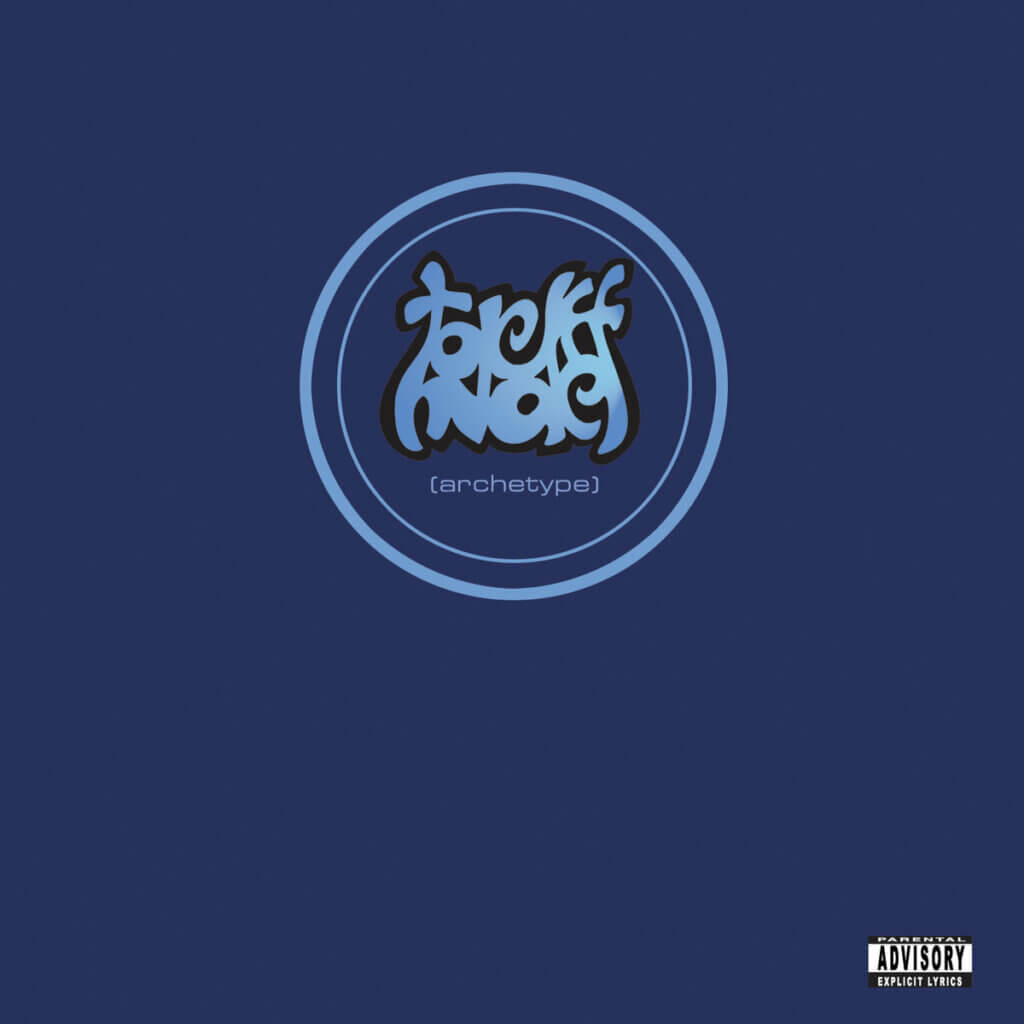


Tonedeff’s Archetype is a display of formidable skill that never lets up, blending rapid-fire flows, emotional depth, and musical versatility. From the opening track, “Overture,” Tonedeff’s self-production and piano work set the stage for what unfolds as an album that wears its ambition on its sleeve. But it’s the title track, “Archetype,” that really starts to dig into the frustrations of an artist’s journey. The track pulses with energy, his lyrics feeling like a manifesto of an emcee who’s seen the game’s limits and is eager to break free from them.
Tonedeff’s flow is a central element throughout the record, and it’s jaw-dropping. He delivers syllables so quickly and cleanly that you can catch every word. On tracks like “Case Closed” and “Heavyweight,” his rapid delivery cuts through layers of beats, each bar carrying punchlines and multisyllabic rhymes that feel more like a battle against time than a casual flow. But it’s not just about speed. His emotional range pulls through when he slows down, as on “Masochist,” where the lyrics take on a more introspective tone, exploring human tendencies and internal conflict.
In contrast, songs like “Porcelain” display his softer side, with a haunting piano melody underpinning a deeply personal narrative. Here, Tonedeff explores the pains of unrequited love, letting his voice and the song’s somber tone carry the weight of his vulnerability. “Loyal” follows with a more reflective theme, focusing on trust and relationships, a stark departure from some of the album’s more light-hearted moments.
While Tonedeff is certainly the star here, the production is a diverse mix of elements that highlight his ability as a musician. From soulful chipmunk vocals on “Disappointment” to string-heavy arrangements on “Heavyweight,” his varied use of instruments keeps the album dynamic and fresh. But, at times, the album suffers from uneven sequencing and the inclusion of older material, which might lose some listeners’ attention.
Despite these moments, Archetype is an impressive display of Tonedeff’s range, from battle raps to personal reflections. It’s a record that feels like the work of an artist pushing for recognition—and it’s hard not to hear the passion in every line.
¡Mayday! – ¡Mayday! (2006)
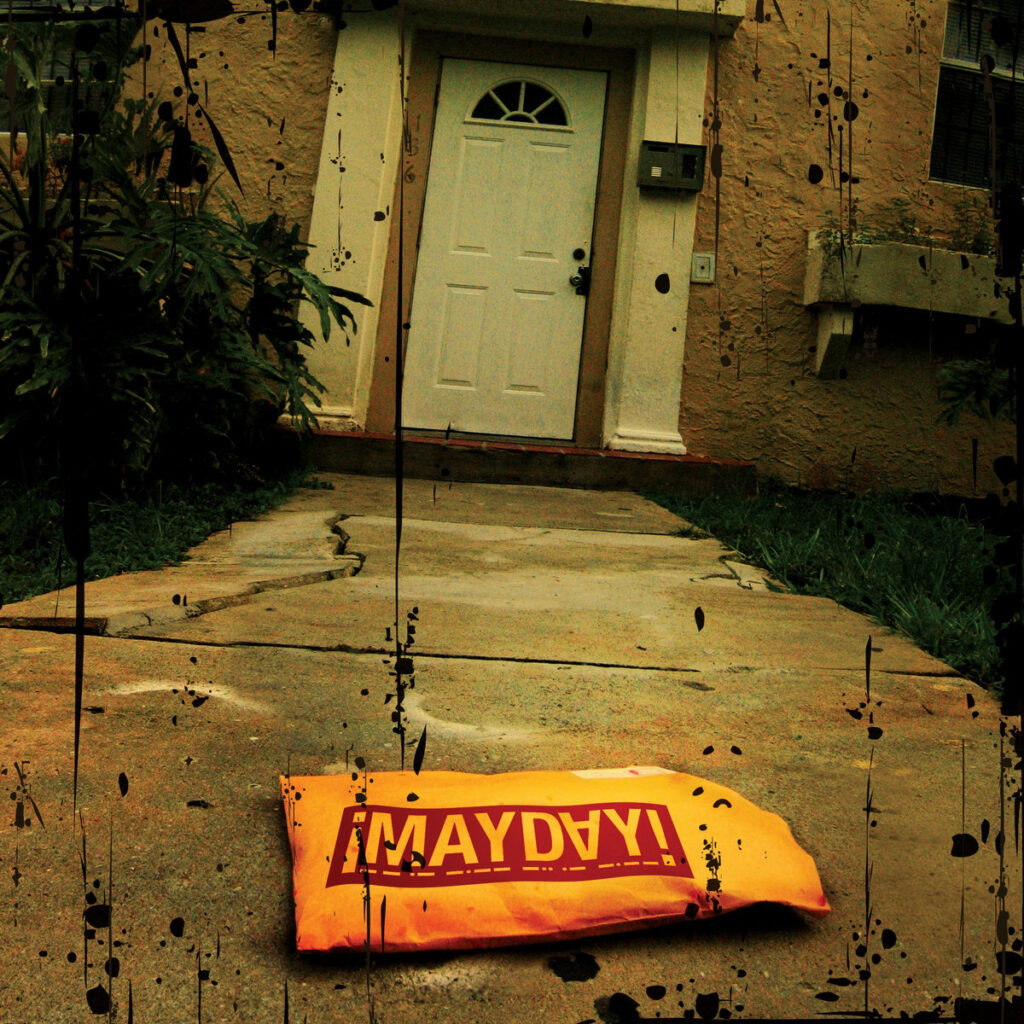


¡Mayday!’s ¡Mayday! is an ambitious self-titled debut that announces its presence with a mix of polished production, eclectic influences, and a commitment to lyrical craft. The Miami duo—comprised of rapper Bernz and producer Plex Luthor—creates a gritty and atmospheric world, capturing moments of vivid storytelling and introspection.
Plex Luthor’s production weaves together tight drum loops, dense layers of instrumentation, and sharp turntablism. Tracks like “Groundhog Day,” featuring contributions from Cee-Lo Green and DJ Craze, bring a funk-infused energy that rides between head-nodding grooves and intricate scratching. “Angles” is more stripped-down, relying on a pulsing beat and haunting melodies to create a moody backdrop for Bernz’s lyrics about navigating urban complexities.
Bernz approaches the mic with a dynamic flow that prioritizes rhythm over clarity, bending syllables and packing words into tight spaces. At its best, this style creates a hypnotic pull, as on “Too Many Notes,” where his rapid delivery pairs with playful yet dense wordplay. However, this approach can also alienate listeners, with some lines feeling overly abstract or simply hard to follow.
The album’s themes touch on underground defiance, the chaos of nightlife, and personal conflict. Tracks like “Beef” take on the gritty tensions of street life, while “Chasing Ghosts” leans into existential musings with an almost cinematic intensity. The lyrical content is sometimes uneven, with moments of brilliance interspersed with generic lines that feel less inspired.
Guest features, such as Devin the Dude’s soulful presence and Killa Kela’s beatboxing on “In The VIP,” add texture and variety. Still, the spotlight stays on Bernz and Plex, whose chemistry anchors the project. While the production occasionally strays into predictable territory, the duo’s willingness to experiment with tone and pacing keeps the album engaging.
¡Mayday! might not revolutionize Hip Hop, but it delivers a compelling entry point for a group with clear potential. The album thrives on its high-energy tracks and textured beats, even as it grapples with moments of inconsistency. It’s a bold introduction, inviting listeners to dig deeper into ¡Mayday!’s evolving sound.
Rick Ross – Teflon Don (2010)
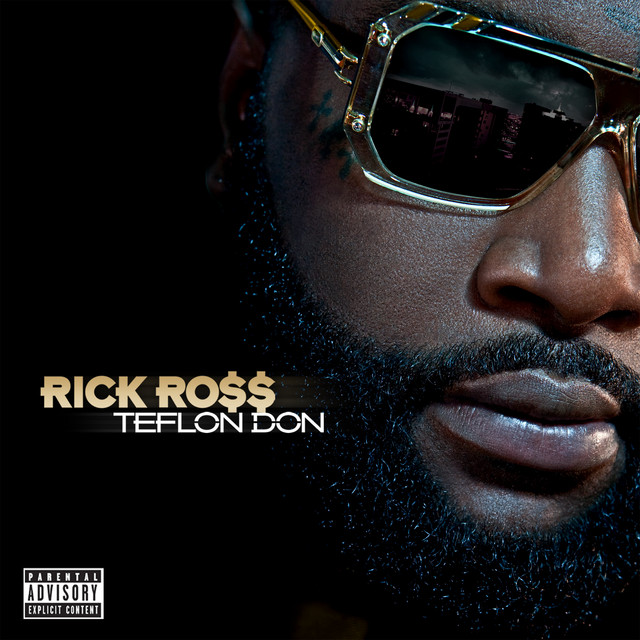


Rick Ross’s Teflon Don is an album that revels in excess and embraces its cinematic nature. From the outset, “I’m Not a Star” boldly announces Ross’s presence in the game, where even his bravado seems larger than life. The production on this album is luxurious, from the sweeping strings in “Maybach Music III” to the resonant bass of tracks like “MC Hammer” and “Aston Martin Music.” The beats, crafted by a team including Kanye West, No I.D., and the J.U.S.T.I.C.E. League, elevate Ross’s larger-than-life persona, adding a layer of grandeur that matches his storytelling.
Ross’s raspy delivery is a defining feature of the album. It doesn’t rely on rapid-fire wordplay but rather on his unique ability to narrate vivid, almost film-like tales. On “Free Mason,” his deep voice takes on an almost reverent tone, matching the beat’s brooding drama. The track finds him rapping with confidence and swagger about a higher power, touching on themes of mystery and influence. Even when collaborating with high-profile guests like Jay-Z and Kanye West, Ross never seems to lose his identity, and his voice remains the focal point.
There’s a balance between ostentation and subtlety throughout Teflon Don. While the album’s mood and themes are undoubtedly about wealth, power, and influence, Ross’s reflective moments are some of the album’s most striking. On “Tears of Joy,” he uses a Bobby Seale speech to add depth to his reflections on loss and hardship. The luxury, however, is never far away, and it provides a backdrop to everything from the light-hearted bottle-popping anthem “Live Fast, Die Young” to the more introspective moments.
While Ross does slip into familiar territory on some tracks, the album’s tight structure—just 11 songs—keeps the focus sharp. The big-name features, like Erykah Badu on “Maybach Music III,” only complement the grand atmosphere Ross crafts. There’s a playful energy here that contrasts with the heavy subject matter, keeping the album grounded despite its lofty ambitions. Teflon Don is a journey into a world of wealth, survival, and aspiration, all tied together by Ross’s unwavering confidence and deep, resonant voice.
SpaceGhostPurrp – Blvcklvnd Rvdix 66.6 (2011)
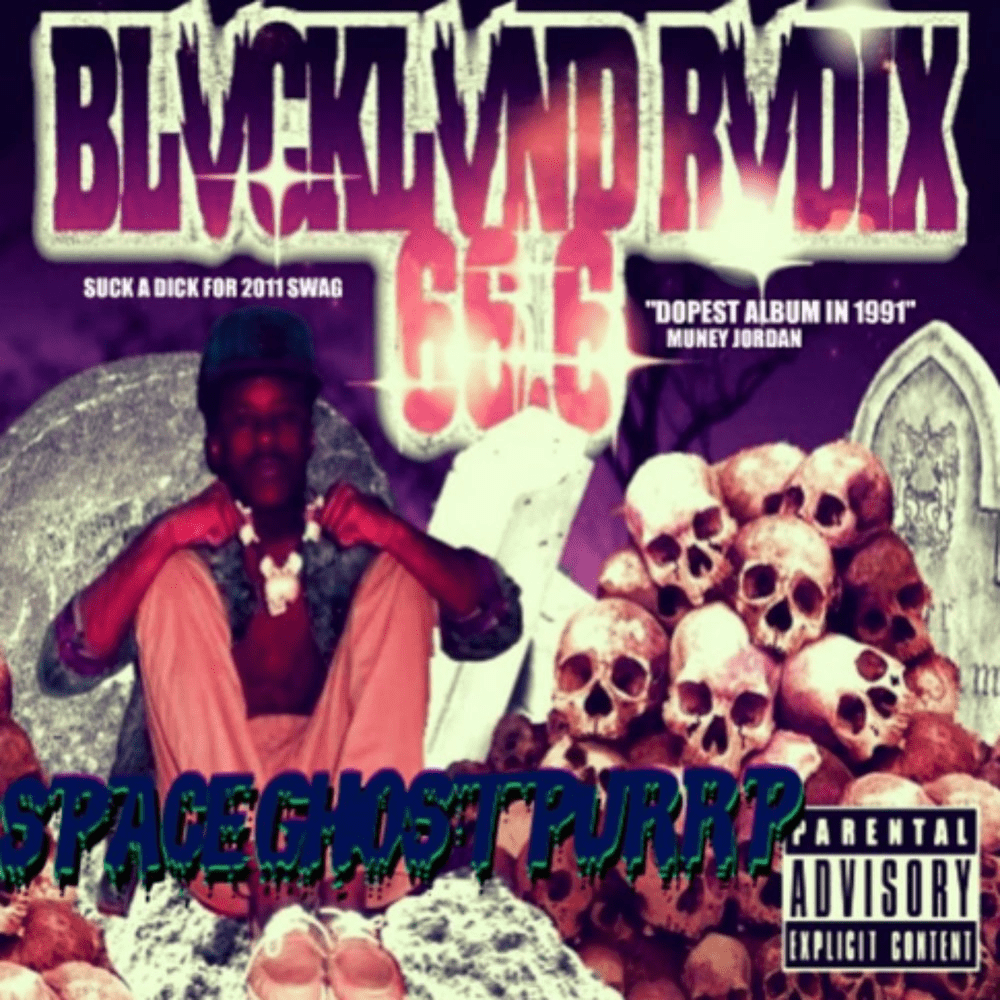


SpaceGhostPurrp’s Blvcklvnd Rvdix 66.6 (1991) is a murky, hypnotic exploration of 90s rap culture, filtering influences like Three 6 Mafia and DJ Screw through a lo-fi, experimental lens. The mixtape drips with atmosphere, folding in elements of early Memphis rap, video game sound effects, and a sludgy, syrup-soaked vibe that defines much of the music. The opening track, “Possessed,” sets the tone: a menacing, distorted loop that feels raw and unpolished, its hook shouted like a scream from a haunted house. The lack of pristine mixing only adds to the oppressive energy, like stepping into a dimly lit room where the walls close in.
Blvcklvnd Rvdix 66.6 imanipulates mood through sound in a brilliant way. Tracks like “Captain Planet” pulse with a steady, eerie synth rhythm, while “Grind on Me” throbs with low-end bass and percussive glitches that create a trance-like groove. The production has a deliberately messy, unfinished quality, as if SpaceGhostPurrp intentionally blurs the lines between the beat and the background noise. Mortal Kombat and Godzilla soundbites invade the mix, adding a surreal layer of absurdity and horror to the already unsettling atmosphere. It’s these random sonic inclusions that keep the listener on edge, never fully letting them settle into a predictable flow.
Lyrically, SpaceGhostPurrp sticks to classic tropes of sex and braggadocio, but his approach is marked by a certain detachment. His delivery is buried beneath the beats, almost like another layer of texture rather than the focal point of the track. The focus isn’t on complex wordplay; it’s on mood, on tone. Even when the lyrics turn graphic, as on “Suck a Dick For 2011,” they blend into the thick haze of the instrumental, reinforcing the sense of immersion rather than offering anything startlingly new.
The tape’s structure feels loose, its 22 tracks often bleeding into one another in a disjointed, fragmented way. It’s easy to get lost in the swampy murk of the production, and while there are standout moments—like the spooky “Osiris of the East Pyramyds Blackland R.I.P. ODB” with its floating synths—the experience works best when consumed as a whole. Blvcklvnd Rvdix 66.6 is a mood piece, an atmospheric journey that echoes the murky depths of SpaceGhostPurrp’s influences while carving out its own odd niche in the indie rap world.
¡Mayday! – Take Me To Your Leader (2012)
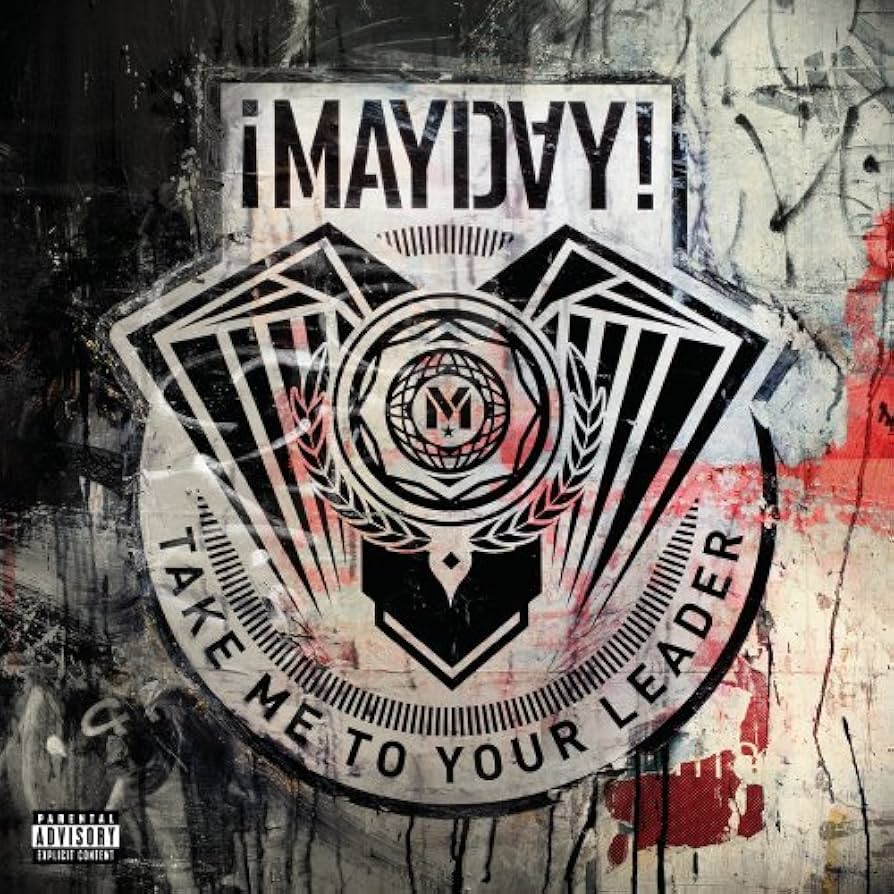


¡Mayday!’s Take Me To Your Leader is a sprawling, genre-defying album that pulses with inventive energy and sharp social commentary. The Miami-based six-piece builds its sound on the interplay between live instrumentation and hip-hop lyricism, creating a dynamic and textured experience. Across its 19 tracks, the band navigates a spectrum of moods—from celebratory to unsettling—without ever losing its sense of purpose.
The album opens with “Badlands,” a fiery blend of stomping percussion, jagged guitar riffs, and verses delivered with precision by Wrekonize and Bernz. This track sets an early tone of urgency, with lyrics that dissect societal fractures while refusing to shy away from the messier truths. From there, Take Me To Your Leader dives into a range of styles, often leaning into funk, rock, and Latin influences. “Roaches,” for instance, pairs a shuffling rhythm with a lyrical metaphor that reflects resilience amid decay, its infectious groove contrasting with its darker thematic underpinnings.
Songs like “Highs & Lows” (featuring Ace Hood) and “R.E.M.” show off ¡Mayday!’s skill in weaving melody into their hip-hop framework. The former tackles substance use with biting self-awareness, while the latter draws on soulful instrumentation to evoke a dreamlike unease. The band’s versatility shines in these moments, with live musicianship enhancing the immediacy of the storytelling.
“Due in June” and its counterpart, “June,” are particularly bold narrative choices. Told from the perspective of a fetus grappling with its existence, these tracks offer a raw exploration of life, choice, and consequence. While potentially divisive, their inclusion highlights the group’s willingness to challenge listeners with weighty material.
Throughout the album, ¡Mayday!’s lyricists deliver intricate rhymes packed with cultural critique, biting humor, and personal reflection. Tracks like “Everything’s Everything” amplify this with layered production that swings between frenetic and ominous. Meanwhile, features from artists like Murs and Tech N9ne add texture without overshadowing the group’s cohesive vision.
At 19 tracks, the album can feel unwieldy, with some moments less striking than others. Still, the sheer ambition of Take Me To Your Leader is undeniable. It’s an electrifying statement from a band unafraid to experiment, blending raw talent with a keen eye on the world around them.
SpaceGhostPurrp – Mysterious Phonk: Chronicles Of SpaceGhostPurrp (2012)
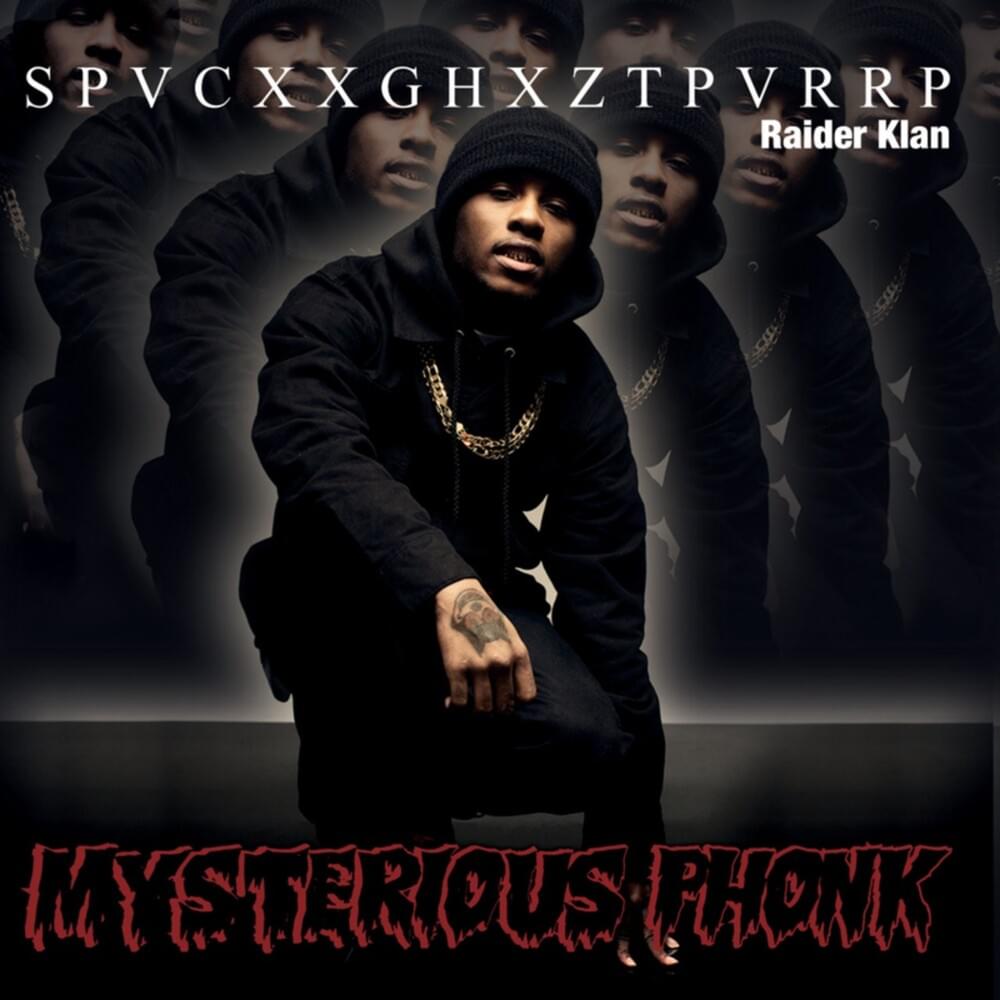


SpaceGhostPurrp’s Mysterious Phonk: Chronicles of SpaceGhostPurrp is an eerie and hypnotic album that channels the murky depths of Southern Hip Hop’s past through a modern, lo-fi lens. Released in 2012, the record captures a shadowy atmosphere, drawing from Memphis rap and vintage horror aesthetics to create a sound that feels haunted and tactile.
The album’s production is its core strength. Tracks like “Mystikal Maze” and “Tha Black God” envelop listeners in a fog of cavernous synths, ghostly echoes, and sparse, metallic percussion. SpaceGhostPurrp’s beats move at a deliberate pace, evoking the syrupy tempos of DJ Screw and the claustrophobic energy of early Three 6 Mafia. Each track feels constructed with care, using negative space as effectively as its sounds. On “Bringing Tha Phonk,” sharp snares and ominous basslines are paired with layered, reverb-heavy vocals that creep rather than shout.
SpaceGhostPurrp’s voice, central to the album, is understated but hypnotic. His delivery is monotone, deliberate, and often menacing, a detached narrator guiding listeners through a darkened maze. His lyrics oscillate between nihilism and bravado, full of unfiltered aggression and stark vulnerability. Lines like “My heart real black, I don’t trust a bitch” from “Mystikal Maze” reveal his alienation, while tracks like “Suck a Dick 2012” double down on vulgarity and provocation.
Though much of the material originated on his earlier mixtapes, Mysterious Phonk refines these songs with cleaner production, courtesy of 4AD’s resources. Yet, even with the polish, the record retains its raw edge. The tape-hiss textures of songs like “No Evidence” preserve a sense of intimacy, as if listeners are hearing them in the dim glow of SpaceGhostPurrp’s bedroom studio.
The album’s cohesion is its greatest asset but also its limitation. The consistent mood can feel hypnotic or repetitive, depending on your perspective. Some tracks, like “Grind on Me,” don’t quite hold up against stronger efforts like “Get Yah Head Bust,” where the brooding energy peaks.
Mysterious Phonk is less an album and more a dark room—unsettling yet inviting for those drawn to its shadows. It captures SpaceGhostPurrp’s singular vision, a hazy reverie of menace and nostalgia.
Rick Ross – God Forgives, I Don’t (2012)
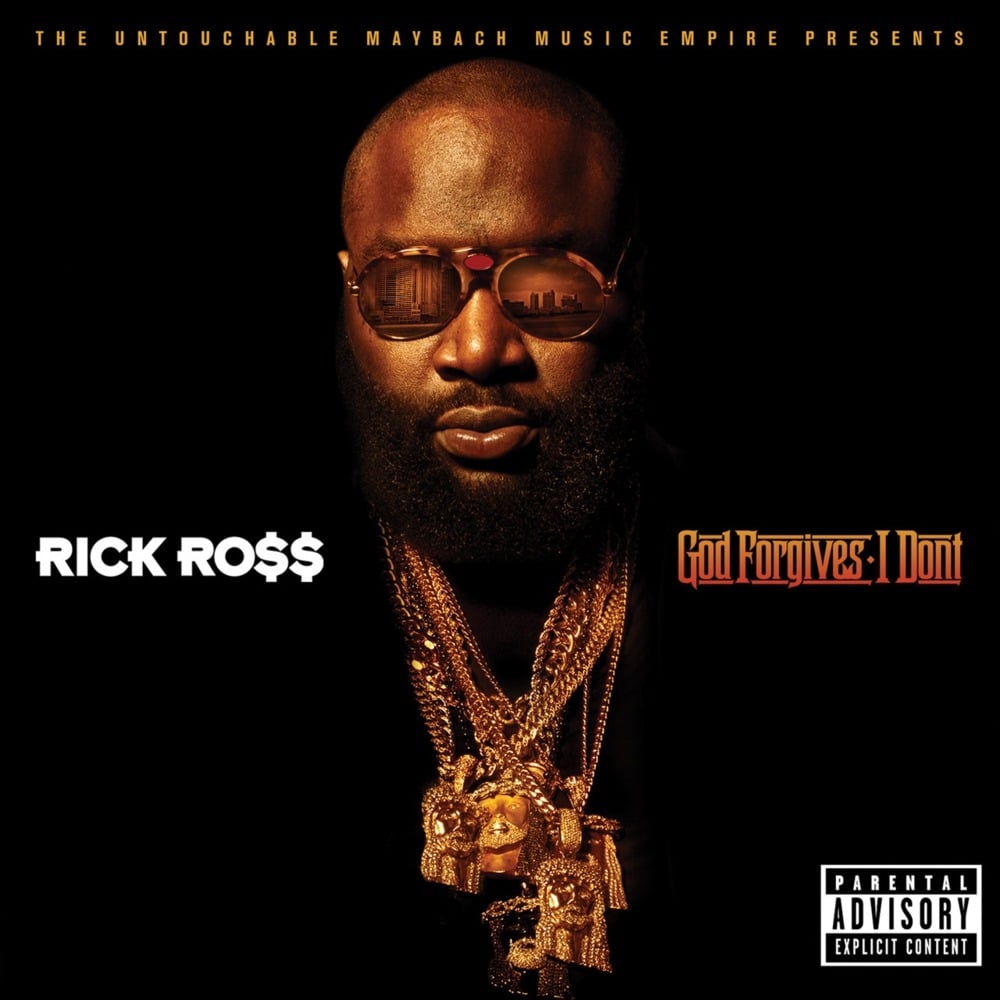


Rick Ross’s God Forgives, I Don’t is an album that thrives on scale, from its cinematic beats to its larger-than-life persona. Released in 2012, the record carries an operatic quality that mirrors its creator’s exaggerated swagger and polished aesthetic. With lush, orchestral production and Ross’s gravelly delivery, this album feels like a crime saga told through the lens of a luxury-obsessed kingpin.
The opener, “Pirates,” sets the tone with haunting strings and an ominous piano loop. Ross raps with precision, weaving tales of hustling and survival while letting the beat breathe, a hallmark of his style. The album’s production leans heavily on opulence, with contributions from J.U.S.T.I.C.E. League, The Beat Bully, and Cardiak creating an atmosphere dripping in grandeur. Tracks like “3 Kings,” featuring Dr. Dre and Jay-Z, elevate the tone with booming drums and reflective verses that toe the line between introspection and braggadocio.
A standout moment arrives with “Sixteen,” where Andre 3000 joins Ross for a sprawling meditation on the constraints of the traditional rap format. The song’s elegant horns and laid-back groove provide a canvas for both artists to stretch out, delivering some of the most memorable verses on the album. Ross’s delivery, deliberate and commanding, contrasts sharply with Andre’s intricate storytelling, creating a rich interplay.
Thematically, God Forgives, I Don’t balances decadence with vulnerability. “Hold Me Back” channels raw aggression through its minimalist beat and Ross’s impassioned performance, while “Ten Jesus Pieces” offers a reflective close, with Stalley’s verse adding depth to the narrative of moral conflict. Ross excels at painting vivid pictures, whether he’s recounting rags-to-riches journeys or reveling in excess, yet there’s always an undercurrent of tension, a reminder of the darker side of his tales.
Not every track lands; songs like “Touch’N You” with Usher cater to the radio but lack the grit that defines much of the album. Still, Ross’s ability to craft a cohesive world filled with luxury, danger, and ambition remains compelling. God Forgives, I Don’t is a testament to Rick Ross’s skill as a storyteller and curator, offering an immersive listen that blends glamour and grit with unapologetic flair.
Denzel Curry – Imperial (2016)
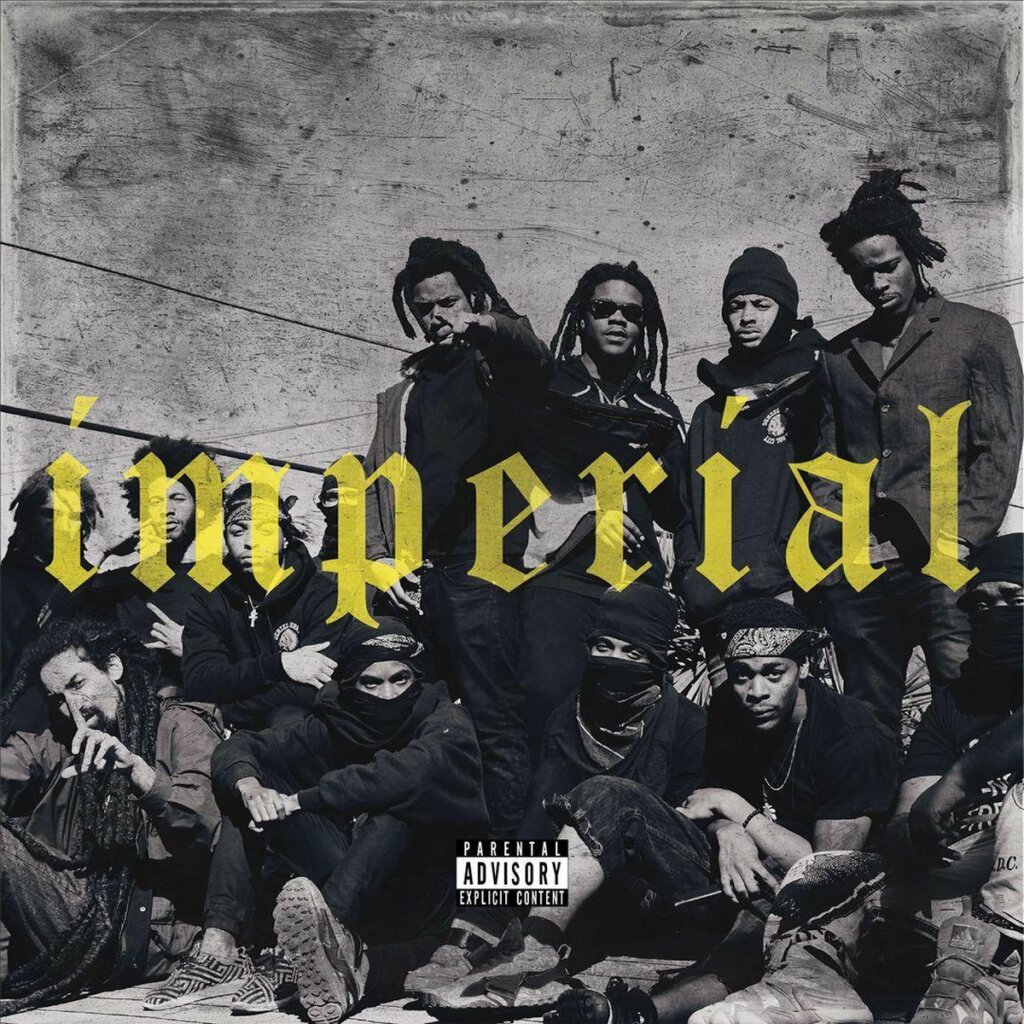


Released in 2016, Imperial by Denzel Curry is a raw exploration of the world through the lens of a hungry and relentless artist. The album is compact, clocking in at just 40 minutes with 10 tracks, yet each song punches with intensity and emotional weight. Curry’s delivery is as aggressive as it is precise, perfectly fitting the aggressive beats and atmospheric production that set the album’s tone.
The opening track, “ULT,” pulls no punches. The eerie synths and distant, watery keys contrast with Curry’s fiery flow, setting the stage for what’s to come. Lyrically, he addresses themes like police brutality and personal conflict with a level of sharpness that commands attention. The song’s hook, simple but powerful, sticks with you, reinforcing the track’s grim intensity.
“Gook” follows with a similarly dark energy, where Curry’s wordplay becomes a standout. He raps about being an outsider, using Miami slang to describe his unique position in the world. His reflections on drug use and the passing of A$AP Yams are layered over a beat that’s both haunting and visceral. The aggression here is balanced with moments of introspection, making the track feel both personal and confrontational.
As the album progresses, the energy shifts but never wanes. “Knotty Head,” featuring Rick Ross, has a bouncy rhythm, yet the introspective verses remain potent. Curry critiques the decisions of those trapped in a cycle of crime, presenting his observations through humor and grim reality. The beat switch in the final moments gives the track a surprising twist, making it one of the album’s most memorable moments.
The tone changes with “Me Now,” a somber reflection on self-doubt and the struggles of fame. The melancholic beat offers a contrast to the rawness of Curry’s delivery, while “This Life” brings some introspective warmth, with a trap beat that perfectly complements his reflective verses. However, the track “Good Night” feels like an odd inclusion, with its unexpectedly bright and uplifting feel that doesn’t quite mesh with the rest of the album’s darker mood.
The final track, “If Tomorrow’s Not Here,” wraps things up with an acoustic guitar riff and a subdued, thoughtful delivery. Curry reflects on mortality, guilt, and fear, delivering a standout performance that is less frantic than the rest of the album, but just as impactful.
Imperial is a well-crafted album that blends personal struggle with social commentary. Curry uses his sharp lyrical style and dynamic flow to create a project that is both explosive and introspective, making it one of the most compelling rap albums of 2016.
City Girls – PERIOD (2018)
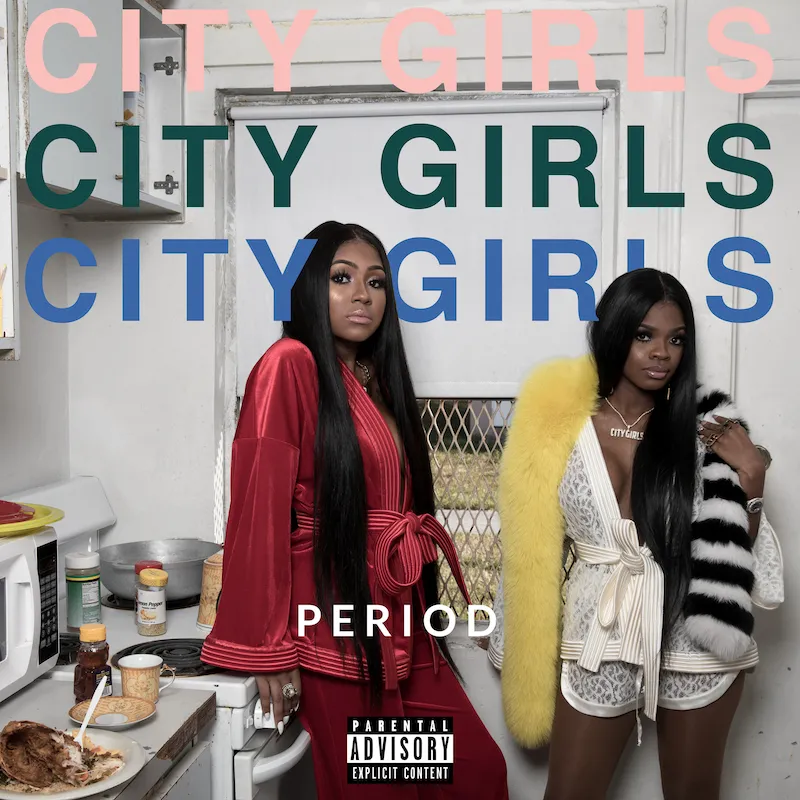


PERIOD by City Girls is a bold, high-energy debut album that captures the essence of Miami Hip Hop. The duo, JT and Yung Miami, bring a refreshing yet familiar perspective to the genre, focusing on wealth, relationships, and independence. Their style is direct, their delivery sharp, and their subject matter revolves around asserting dominance and getting to the bag.
The album opens with “Tighten Up,” where the City Girls dive into explicit topics with playful yet confident commentary about sex and relationships. The track sets the tone with a brash, in-your-face attitude, matched by deep bass and crisp percussion. The beats pulse with that unmistakable Miami flavor, driving the vibe throughout the album. On “Where the Bag At,” the duo doubles down on their money-chasing, wrapping their lines in catchy hooks and hard-hitting 808s that make it impossible to resist nodding along.
While the themes of money, sex, and power dominate the record, the real strength of PERIOD lies in the chemistry between JT and Yung Miami. Their dynamic is on full display, bringing an infectious energy to every track. On “One of Them Nights,” they tell a story from their individual points of view, creating a seamless narrative that flows effortlessly. The track plays out like a conversation, where each artist’s verse complements the other, showing their ability to collaborate without stepping on each other’s toes.
At times, the content becomes predictable, with tracks like “How to Pimp a N**ga” and “Millionaire Dick” rehashing similar themes. Yet, the strong production keeps the momentum moving forward. The beats, filled with trap rhythms and deep bass, provide a solid foundation for the duo’s raw, no-holds-barred lyrics.
PERIOD is an album that captures the spirit of Miami, with City Girls serving up catchy bars, infectious hooks, and a bold attitude. While it doesn’t break new ground in terms of subject matter, it’s a fun, high-energy listen that highlights their unique voices and chemistry.
Denzel Curry – TA13OO (2018)
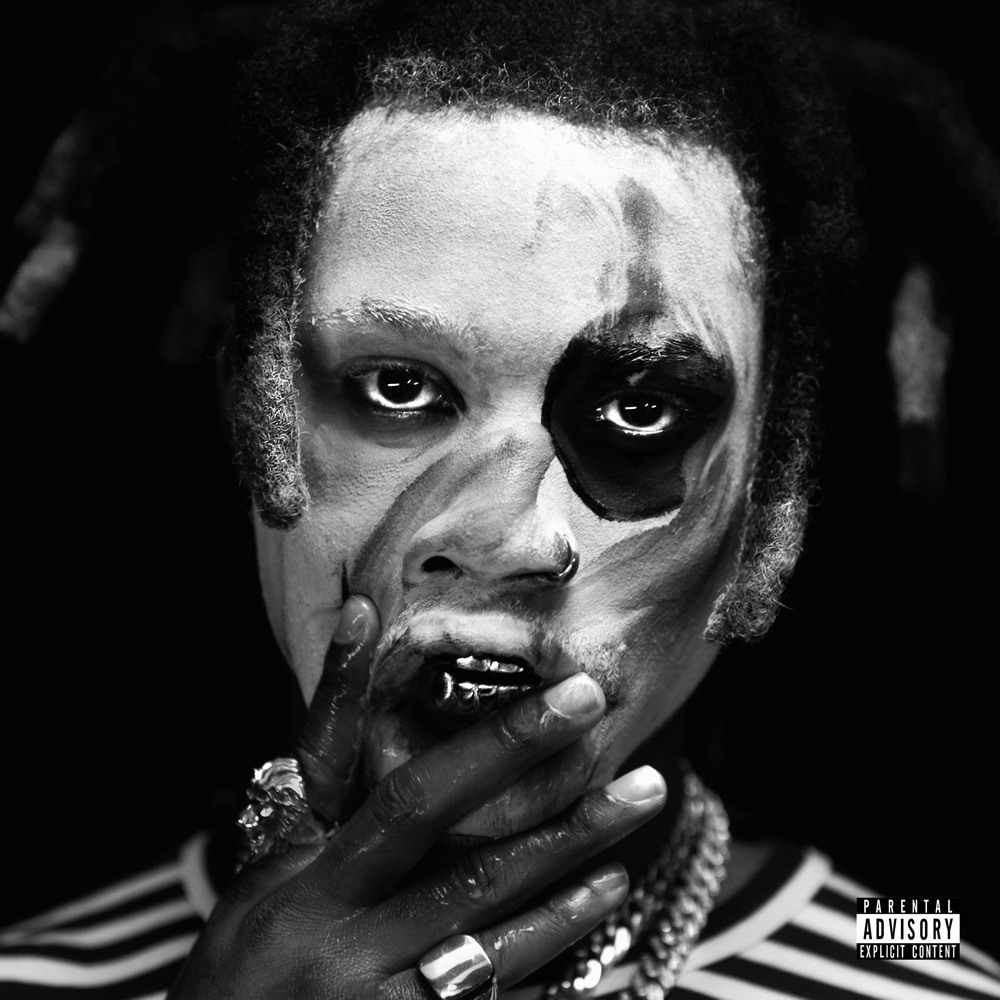


Denzel Curry’s TA13OO is a deeply layered, sonically bold album that showcases the rapper’s growth from a high-energy, battle-rap-focused artist to a more complex, introspective force. With this project, Curry begins to explore personal vulnerabilities and social issues, all within a carefully structured narrative.
The album is divided into three parts: Light, Gray, and Dark. The opening section, Light, introduces an upbeat, almost glossy atmosphere, contrasted by the weighty themes Curry raps about. Tracks like “Black Balloons” balance bouncy production with heavy topics like depression and self-doubt. The smooth delivery of Curry’s verses, paired with haunting hooks, reveals his ability to mask pain beneath energetic flows. The transition into Gray is marked by a darker, more melancholy mood, and the production begins to thicken. In this section, Curry touches on personal trauma and societal issues, exploring the emotional and psychological toll of growing up in an unstable environment.
The Dark section sees Curry embracing his more aggressive side, with tracks like “Black Metal Terrorist” and “Vengeance” bringing raw energy and a chaotic intensity. His rapid-fire delivery and gritty, distorted beats create a harsh, confrontational atmosphere. Despite this, Curry’s vulnerability doesn’t disappear—on “Clout Cobain,” he grapples with the emptiness fame can bring, delivering a heartfelt commentary on self-worth and identity.
Throughout the album, Curry’s vocal versatility is one of its standout features. He shifts from forceful rapping to moments of crooning, layering his voice with effects that accentuate his emotional range. This dynamic approach heightens the impact of his lyrics, making it clear that TA13OO isn’t just about bravado—it’s about the complexity of the human experience, especially for a young artist facing the pressures of life and fame.
The guest features, including JPEGMAFIA, JID, and GoldLink, each add a distinct flavor, but never overshadow Curry’s central role. Their contributions feel integrated into the narrative, enhancing the album’s thematic depth rather than distracting from it.
TA13OO is an album of contrasts, balancing darkness with light, aggression with vulnerability. It’s a work that draws listeners into Curry’s world, offering both a powerful sonic experience and a raw emotional honesty that makes it stand out in Florida Hip Hop.
This post was originally published on this site be sure to check out more of their content.



